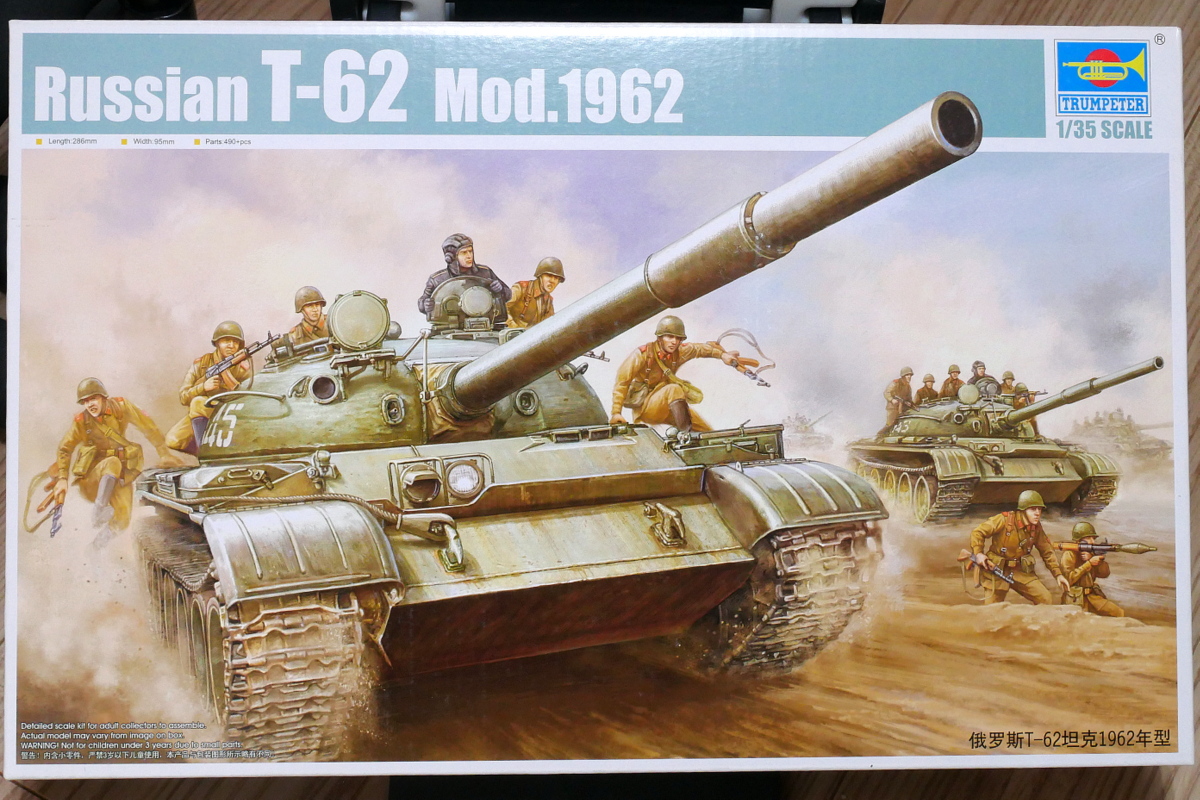
It is now a very old post-WWII tank, but I will try to make a T-62 representing the Soviet Army. I think it’s one of the more reasonably priced Trumpeter kits. Despite that, it has etched parts and connecting track, which gives a good impression.
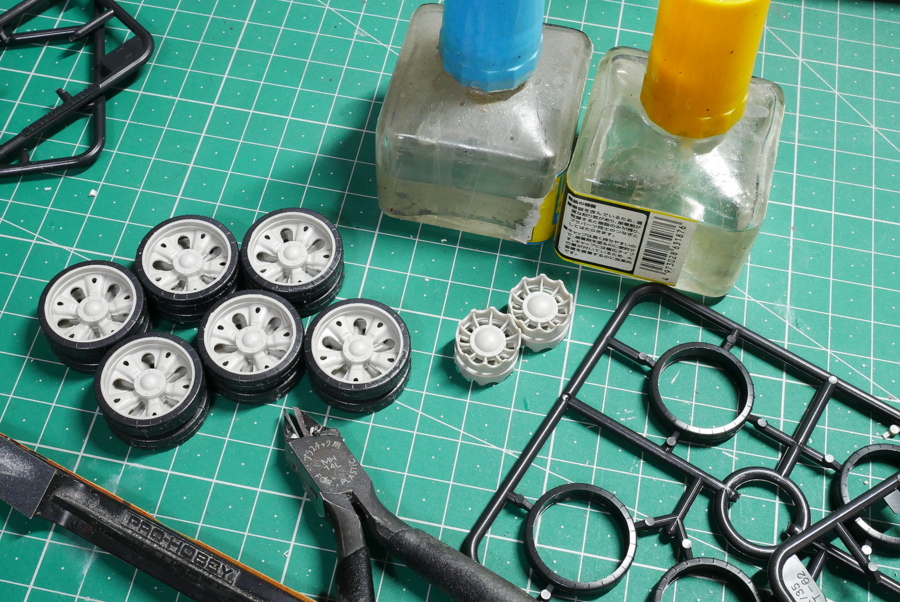
The rubber part of the roller was separate, and the rubber part was a plastic part with a black molding color. When the wheel is assembled, the mold is fine and three-dimensional, so it is very well made. This is a good part of understanding the thin metal of the wheel.
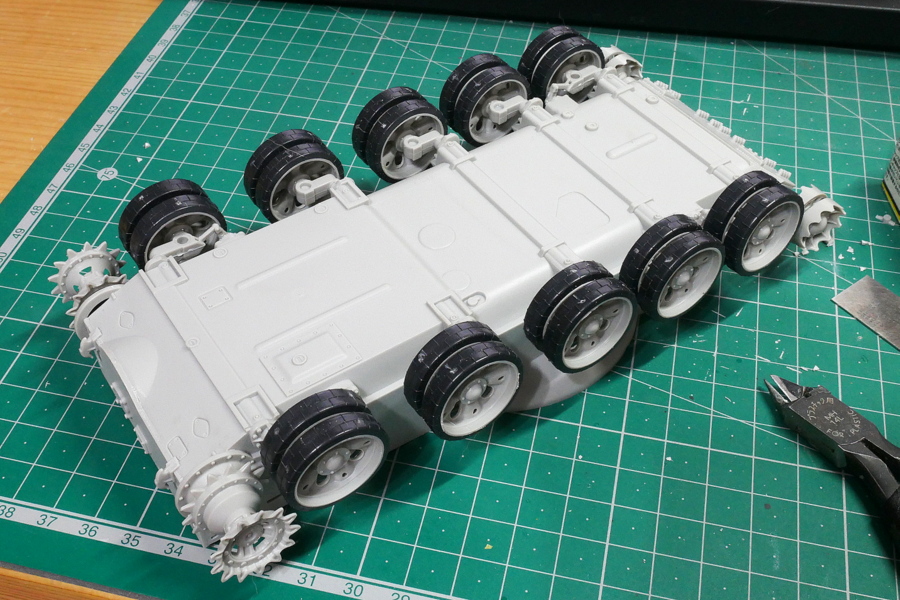
After all, the molded color of the plastic parts on the tires is black, but in the end, the sticking-out parts that are airbrushed dark green will be painted flat black or rubber black.
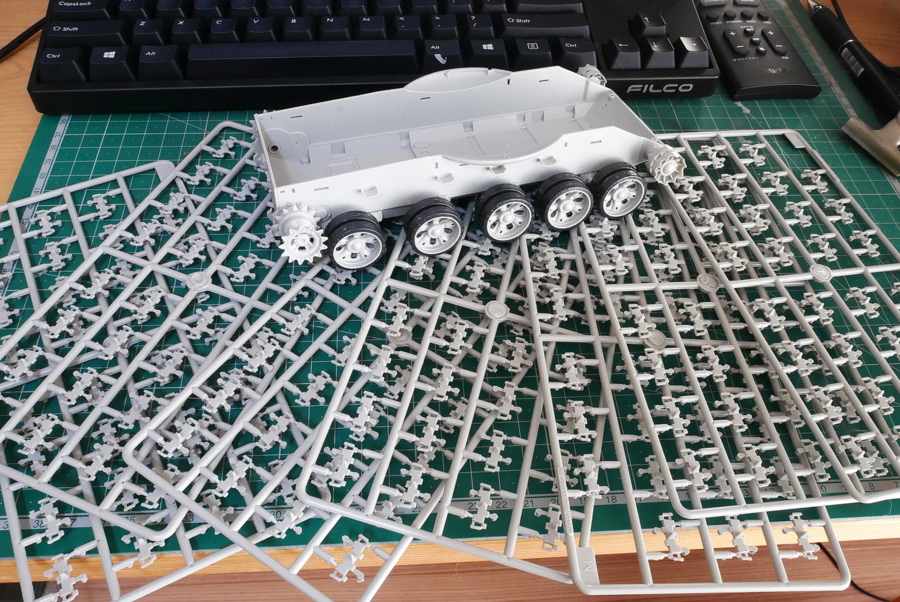
This time, the track is one frame connected, which is familiar to Trumpeter. It’s a bit cumbersome with a lot of gates.
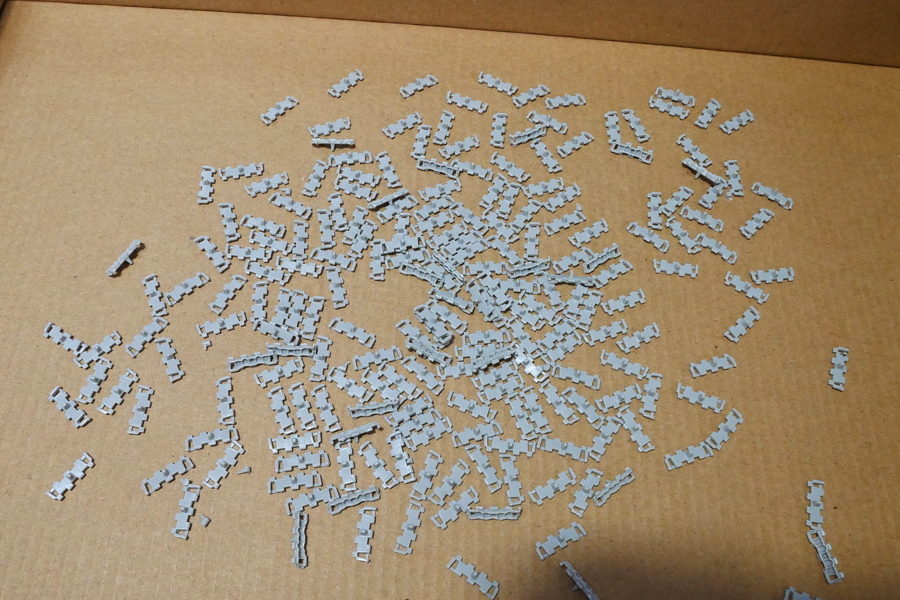
All the connecting track parts were cut out. There seems to be a very small number of them. I worked on the cutouts while watching TV and listening to music inside a plastic model box cover. Even a little leap reduces the risk of loss.
(2023/05/15)
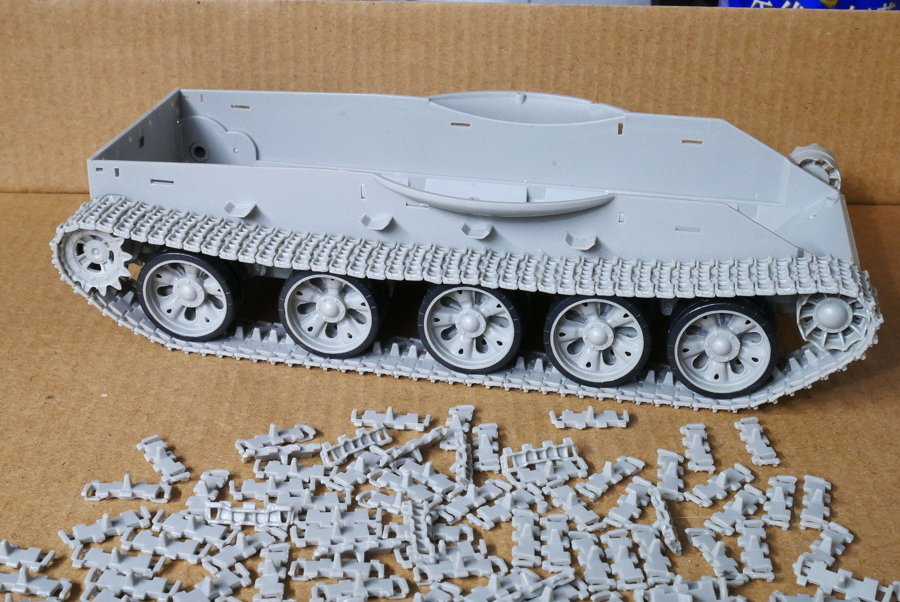
Bonding is easier than cutting out parts. I glued the track with a slight weight hanging from both ends. It is gradually lowered without touching the rightmost and leftmost rollers.
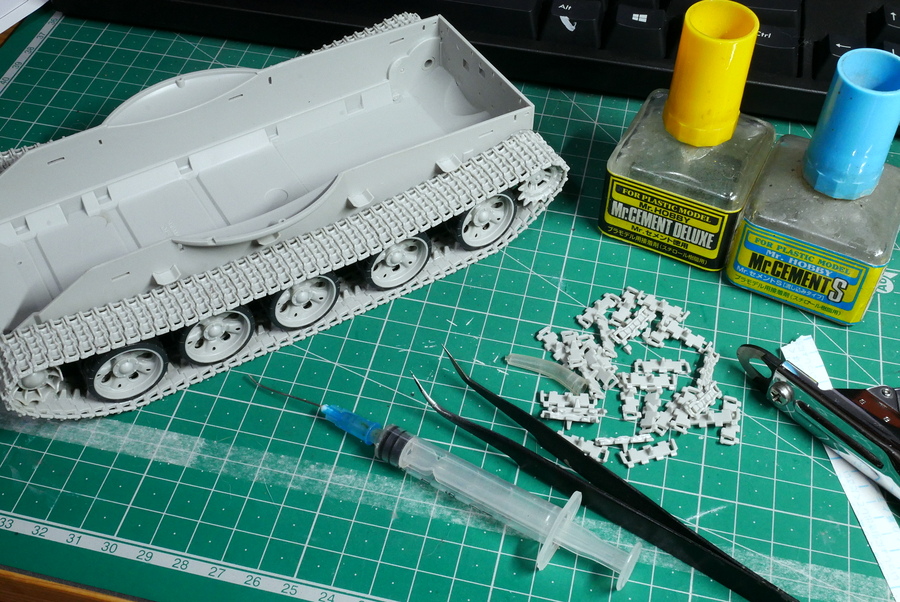
I wrapped up the other side without any problems. I recommend using a syringe to pour glue because it quickly penetrates the joint surface.
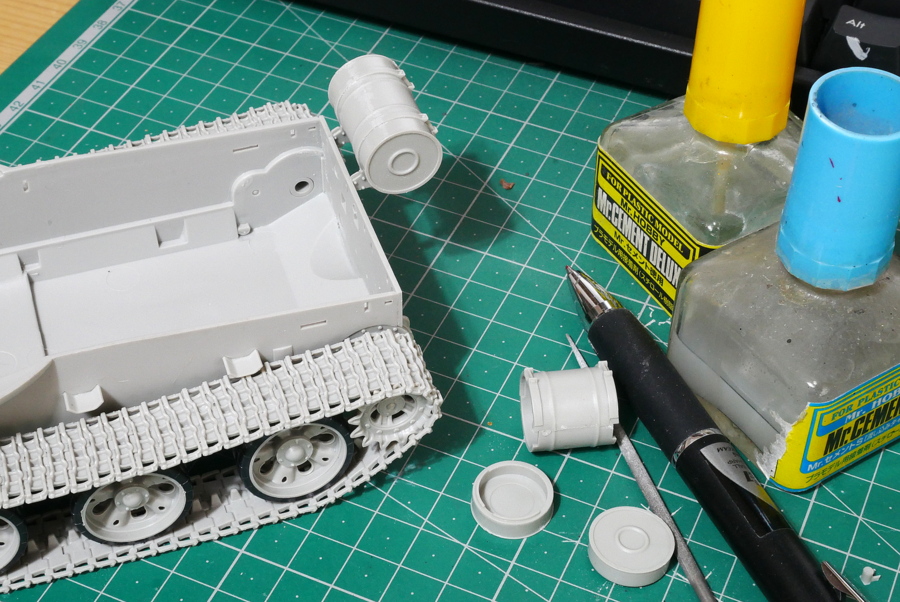
The instructions and my procedures are a little different, but the fuel tank drum should be attached at this time so that it can be quickly corrected if it misaligns with the support rack, so I finished assembling it to the end.
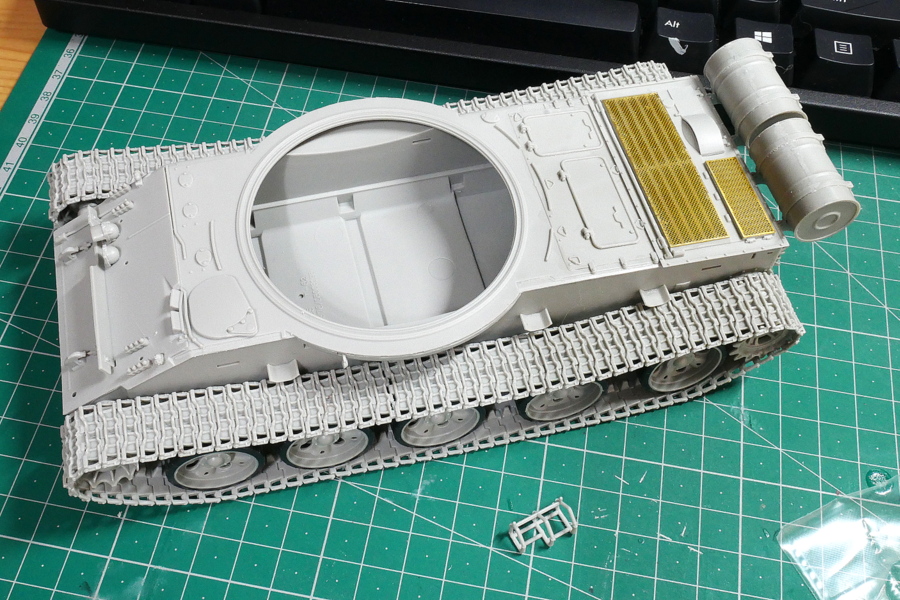
I attached the etched parts and delicate parts of the tanks. It has become much more precise.
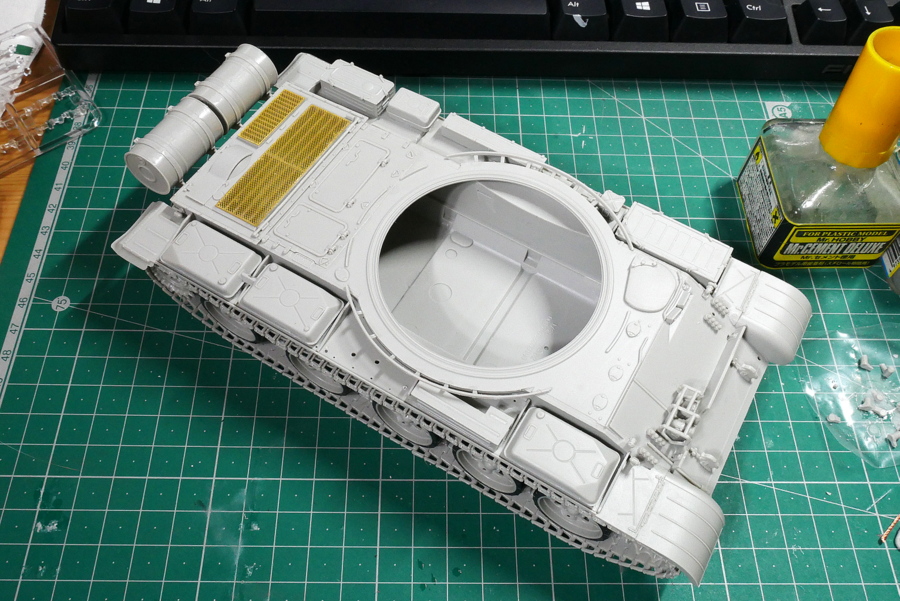
The fuel tank and toolbox are also fitted, and everything except the turret is completed.
(2023/05/18)
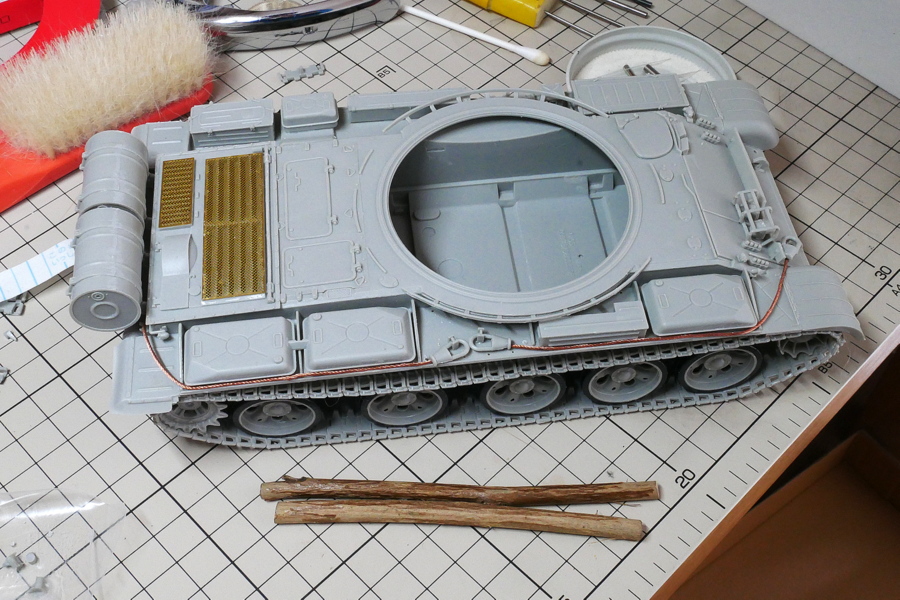
The copper wire resembles the towing rope that is included in the kit. This type is excellent as it is soft and easily fits the vehicle. The cost may be high, though. I wouldn’t say I like hard metal, so I use my nylon cables instead.
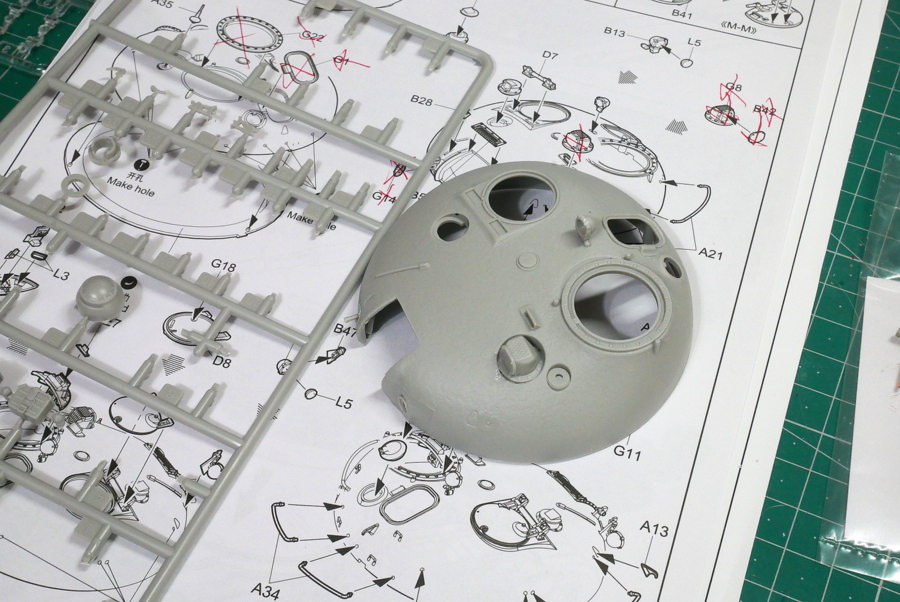
The turret with the last piece of assembly is being built. I thought it would be simple and have few parts because it was a T-62 that was just deployed. But it’s a little different from the current tanks, but it has a lot of parts since it’s a post-WWII tank. There is talk that the T-62 has returned to active duty on the Ukrainian front, and there is talk that it is only on guard at the rear front. Either way, if I’m going to be a tank crew, I’d like to get on the latest model. It’s a pity they have to fight in an old model.
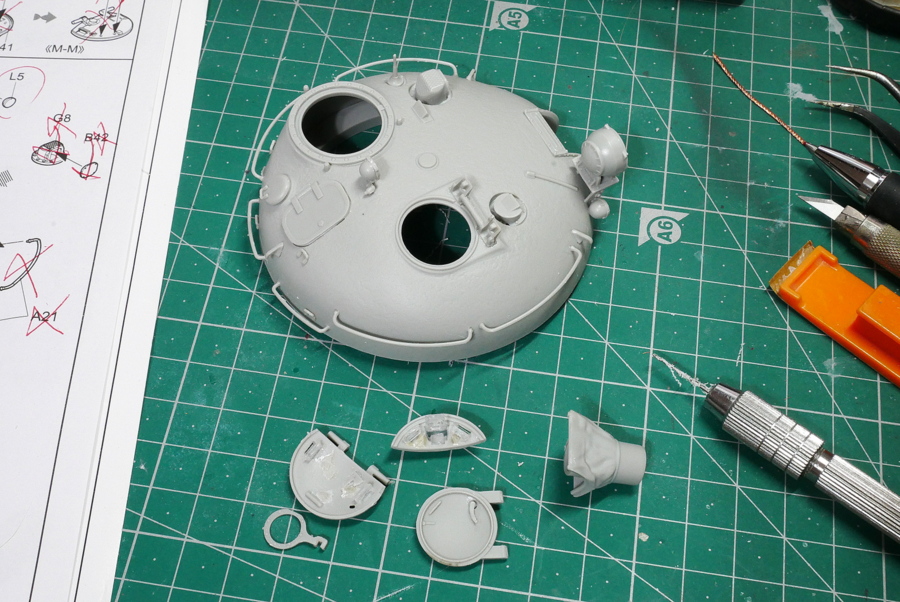
There are many things to do, like filling in the pin marks on the back of the hatch with putty or making the hole in the handrail ourselves. But it has fewer parts than a T-90 class tank.
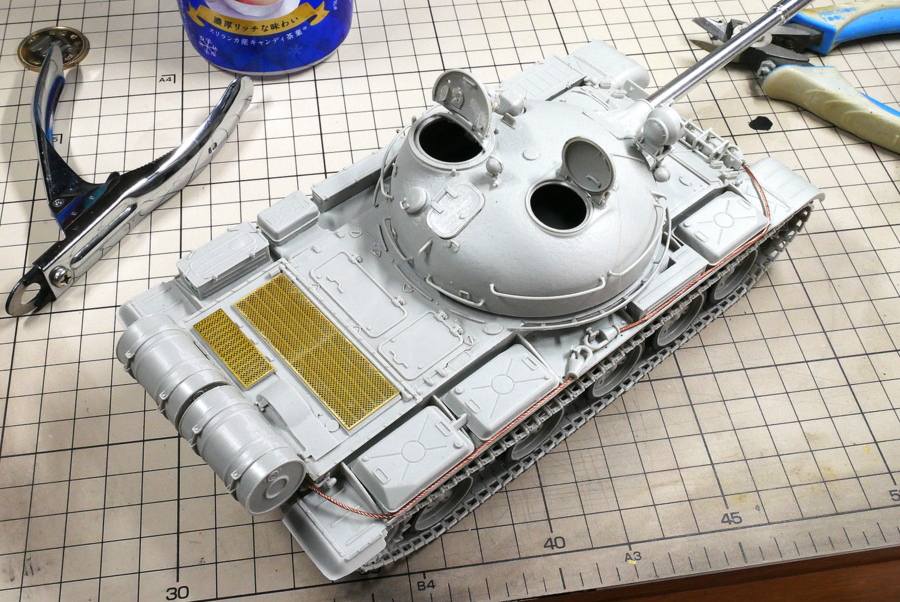
The assembly is almost complete except for the clear parts. I want the turret to be improved because it only covers the turret from the top, so I want it to be designed so that it doesn’t fall off when fitted and turned, as is often the case with other manufacturers’ tank kits. But the kit is excellent because it’s shallow heights and looks stable.
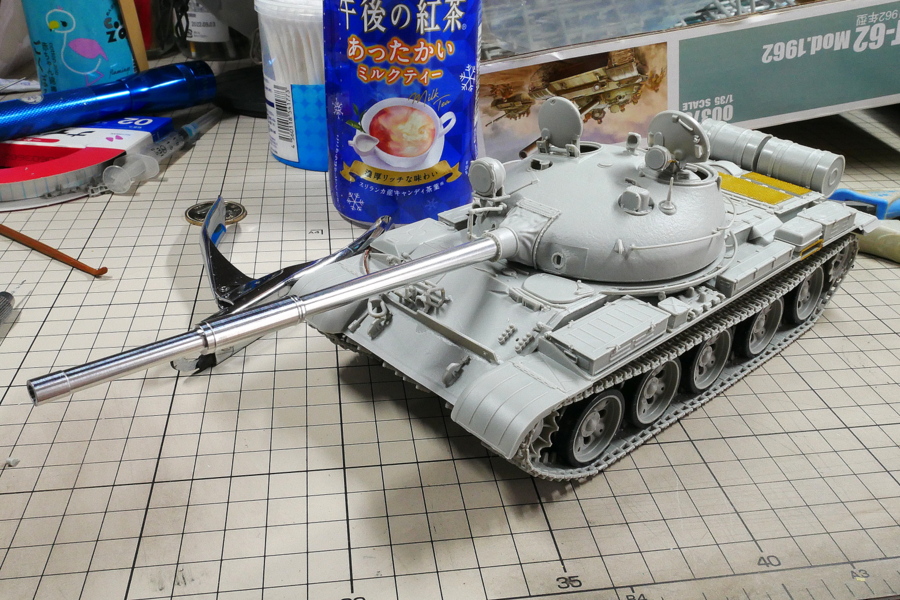
Surprisingly, there are handrails in many places. Is this possible? I wonder if they expect to attack by holding on to the turret from the outside. But I’ve heard that such an operation has a high attrition rate for infantry.
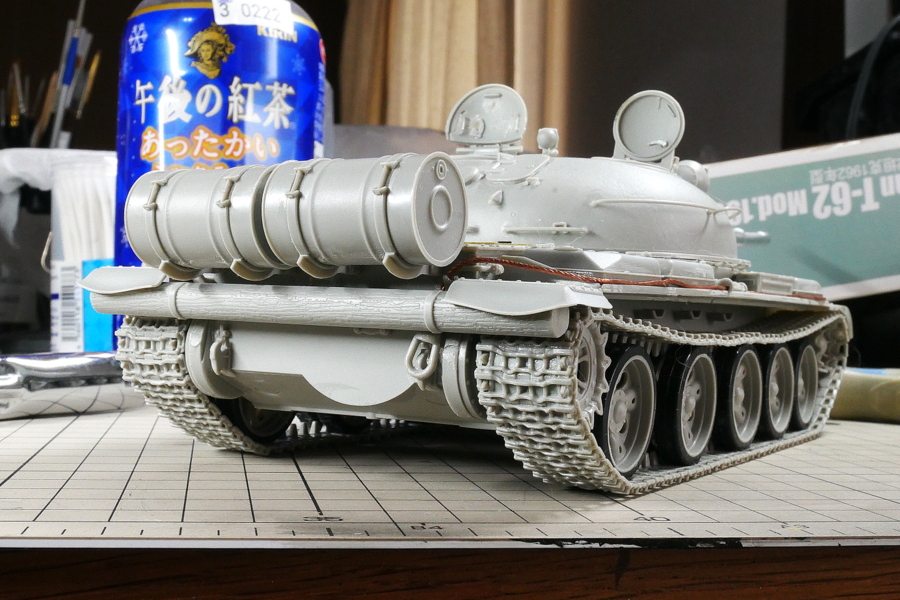
I prepared a twig to resemble a log, but the kit’s plastic part has a clamp, so I thought this would be better. I was oddly amazed because I didn’t think it had a stack escape log.
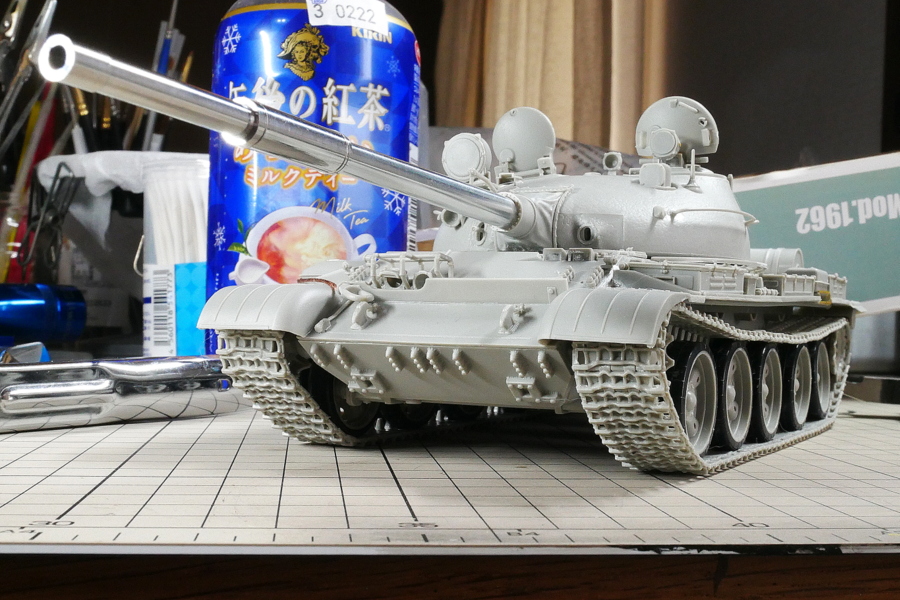
The Russian Tank is often portrayed as a villain or a mob character in Western movies, but it looks as strong as the Tiger or Panter in WWII. It needs to be stronger than that in terms of era. It has a metal barrel, which makes this kit worth many points.
(2023/05/21)
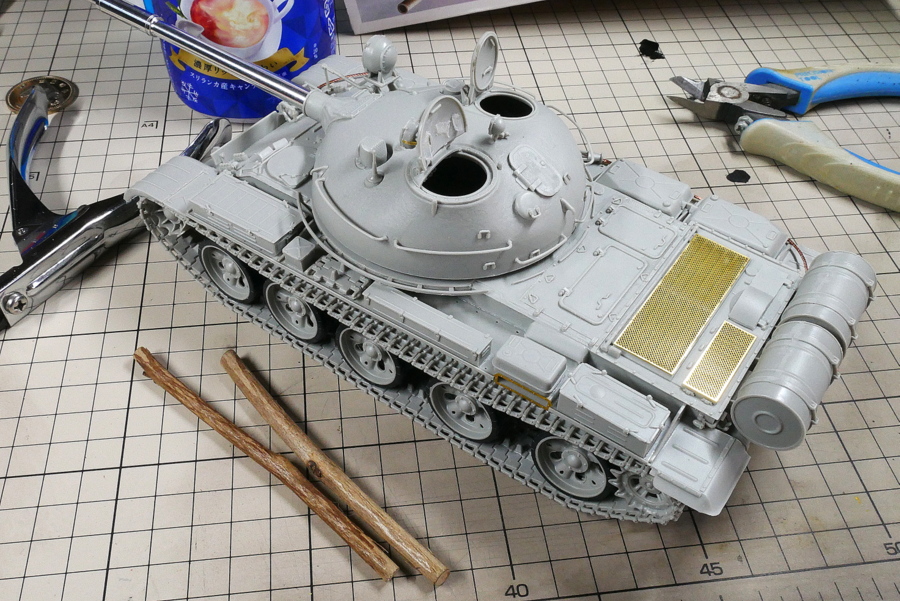
There seemed to be no place to put the logs on the side, so I only had to put them on the back of the tank this time. I haven’t glued the hatch yet. I think I’ll pick out some figures and place them. I think I bought something a long time ago somewhere.
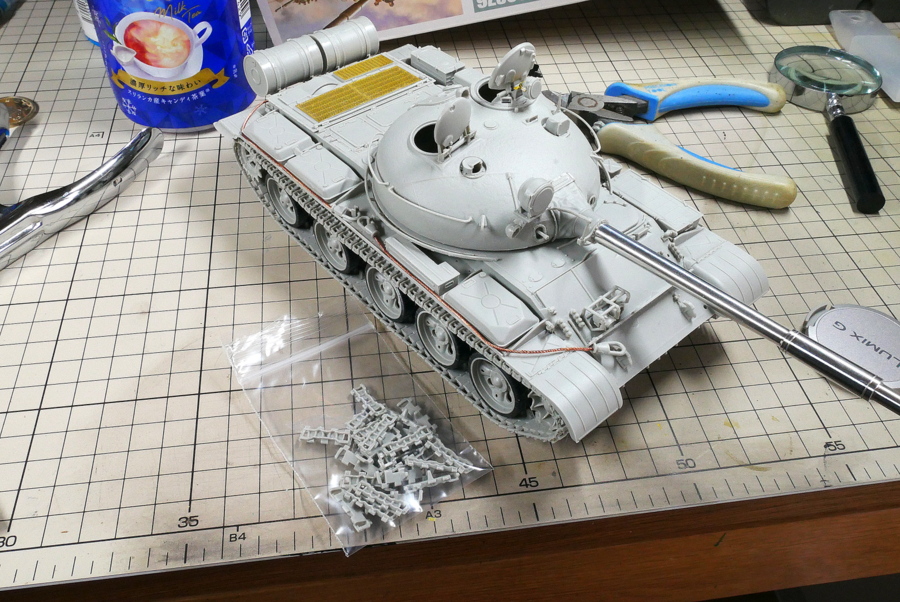
I have enough left over the tracks to put in a small plastic bag.
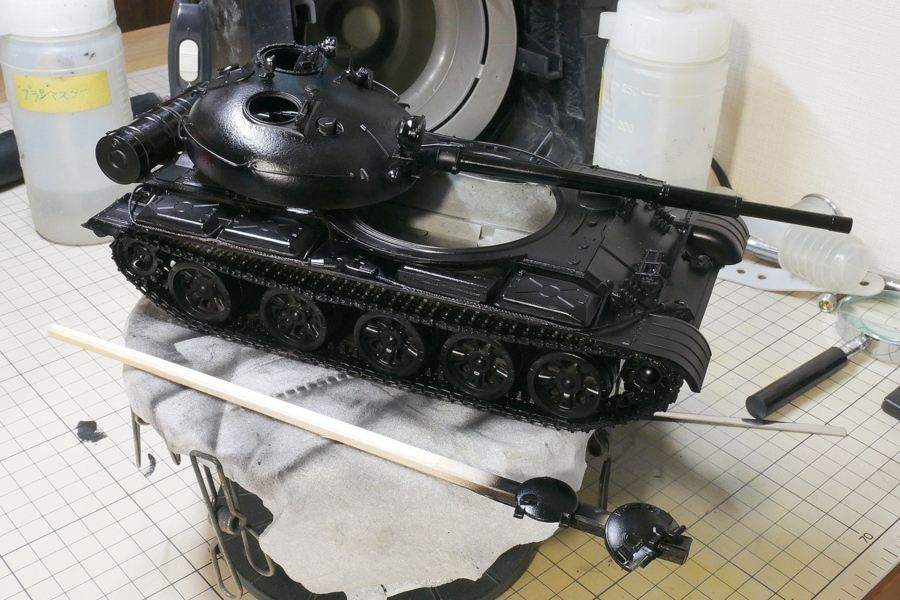
I’m underpainting it with black. Painting the track is more convenient later.
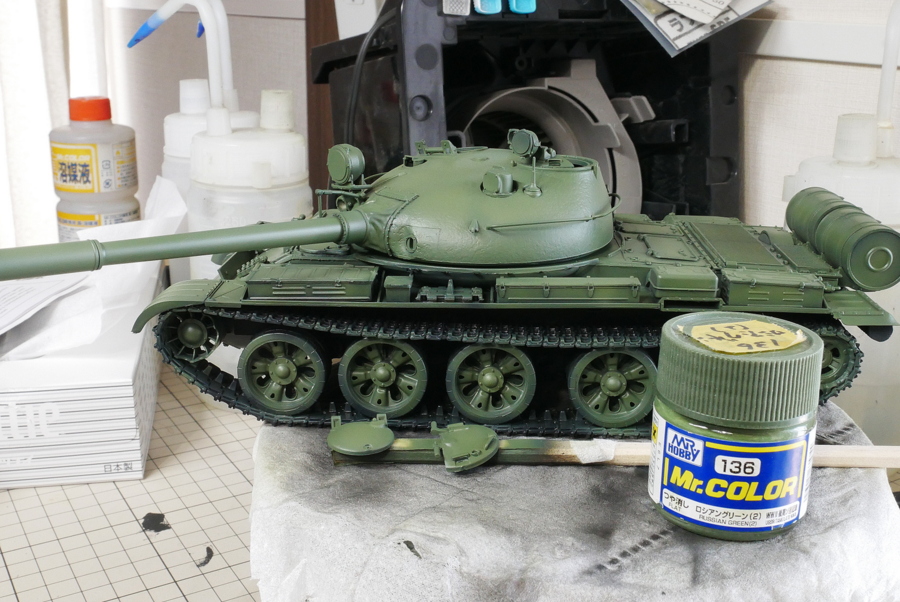
The Trumpeter’s manual specifies Creos 303; the Green FS34102. I wonder if FS is the designated color for US military aircraft. I think the green is a little thin. I guess Russian green or khaki green is the standard. The color designation of Trumpeter is careless, so we shouldn’t take it lightly. It’s likely to look like a Creos 303 when dusted. Creos No. 136 Russian Green was used as a base in this painting, and some parts were painted with a bit of dark yellow mixed in a different color tone.
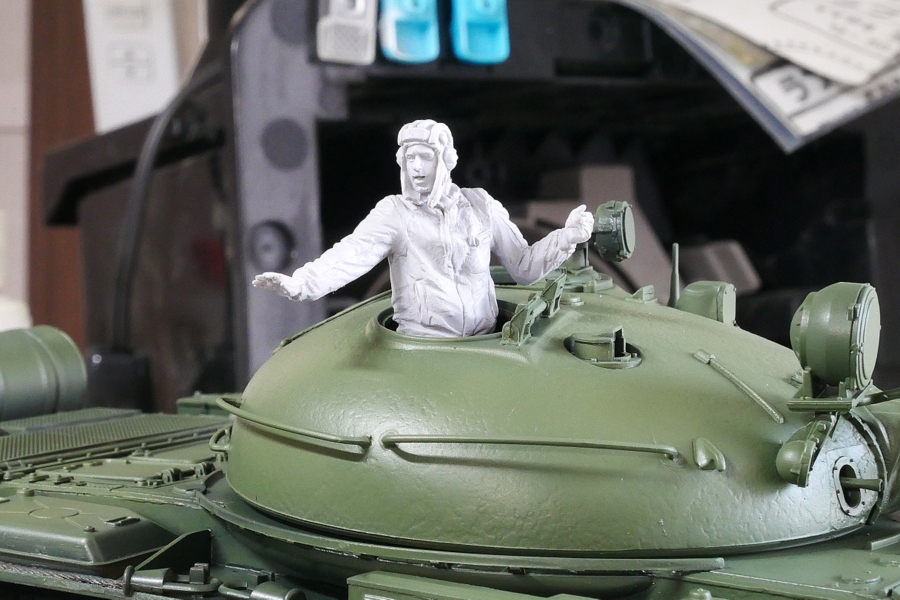
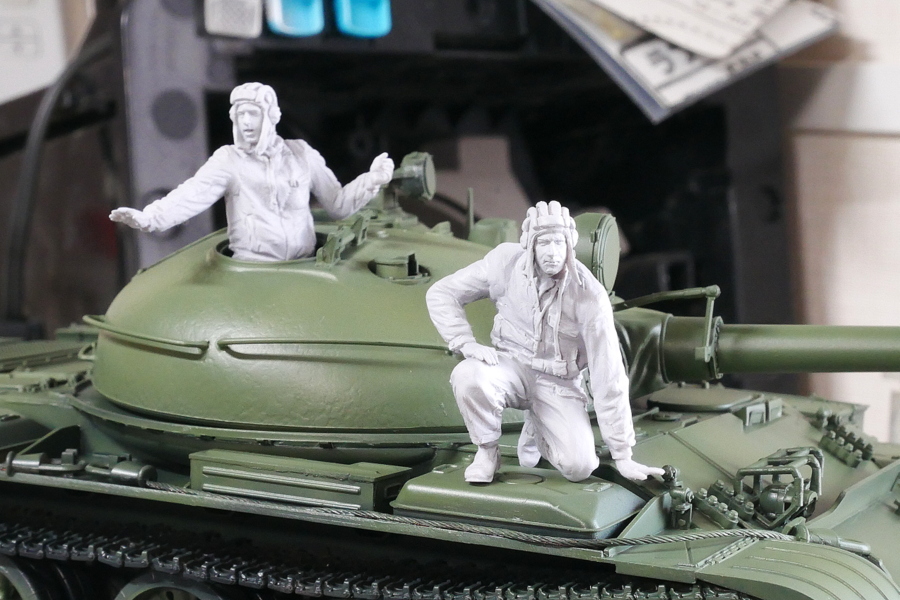
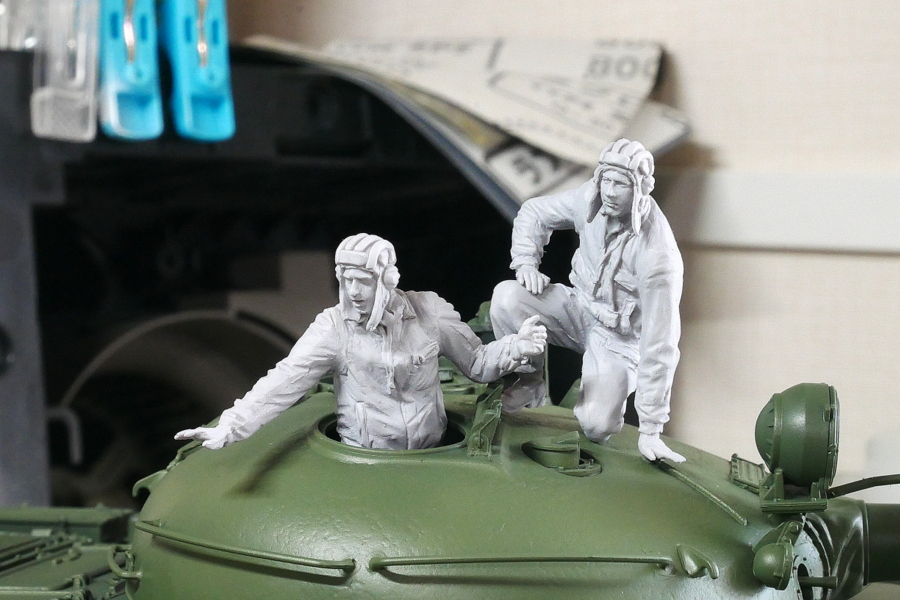
Once upon a time, when a figure from a manufacturer called tank came out, I liked it and kept it. Is it called Tanki instead of tank? I’m not sure… Maybe they are still selling it, but the Japanese yen is on the decline, and it may be much more expensive than before.
(2023/05/24)
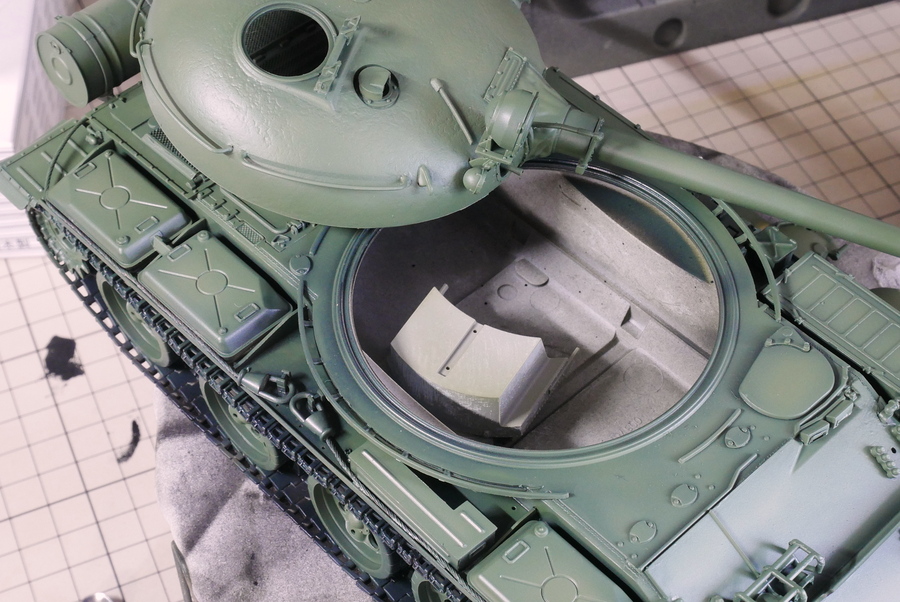
I decided to make the stand of the Russian tank crew on top of the other German Tank extra parts, Gepäckkasten, giving them height.
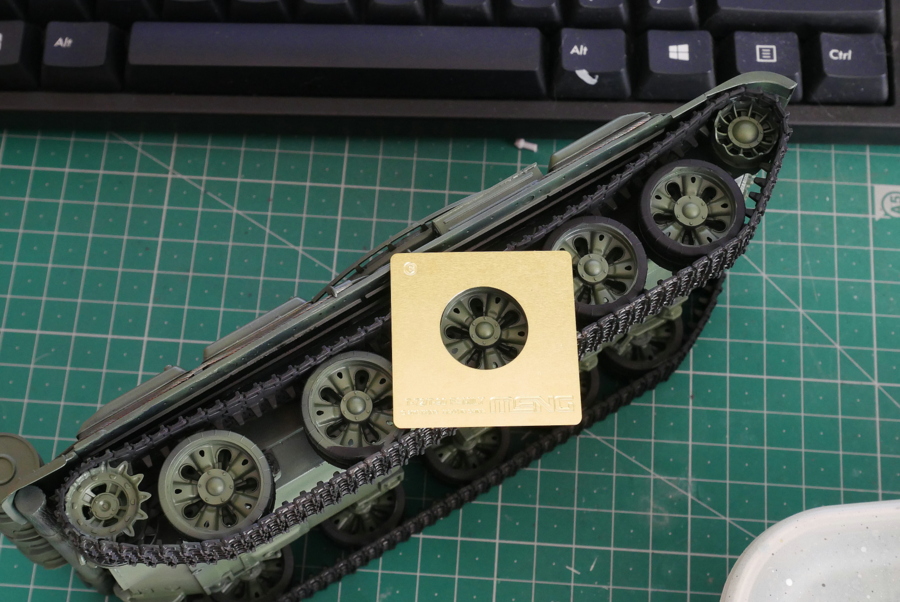
It turned out that this metal plate in the MENG kit was for masking wheel paint, so I decided to use it… I couldn’t make it because various parts were bothersome after making it.
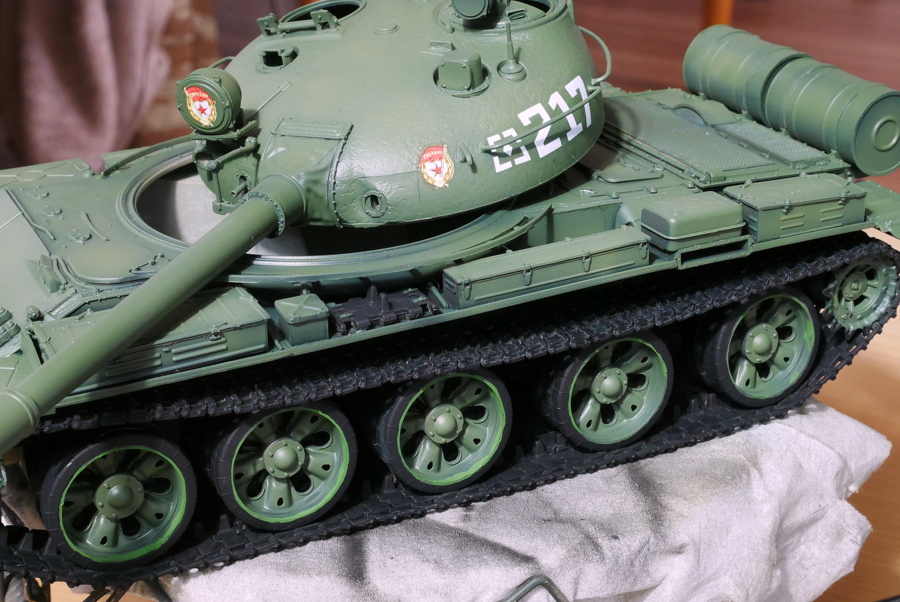
Decals were pasted with random numbers of my choice. I also attached the decals of the Russian Guard about the actual vehicle photo.
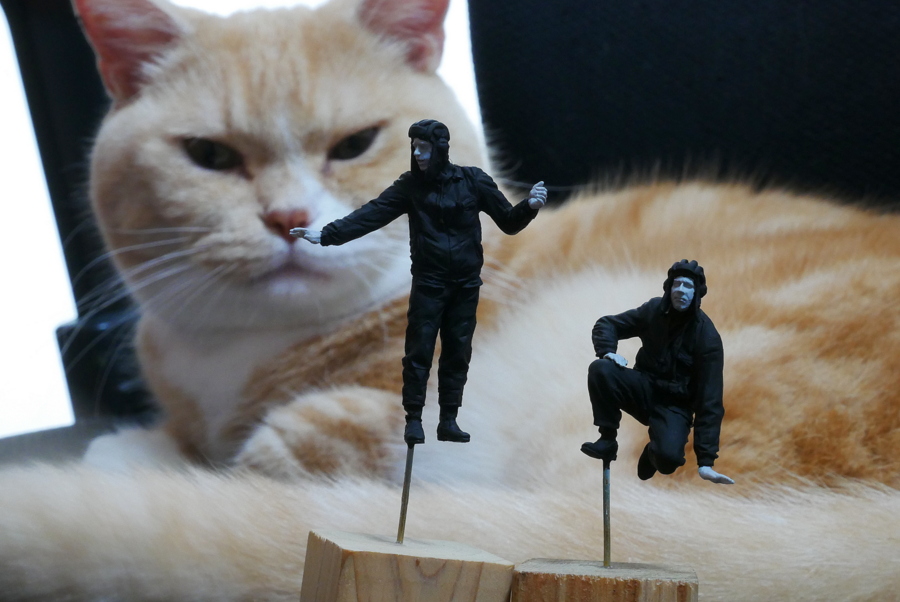
It looked like a composite photo, but it was a regular shot. I have to evacuate them before the cat behind them crunches them.
(2023/06/01)
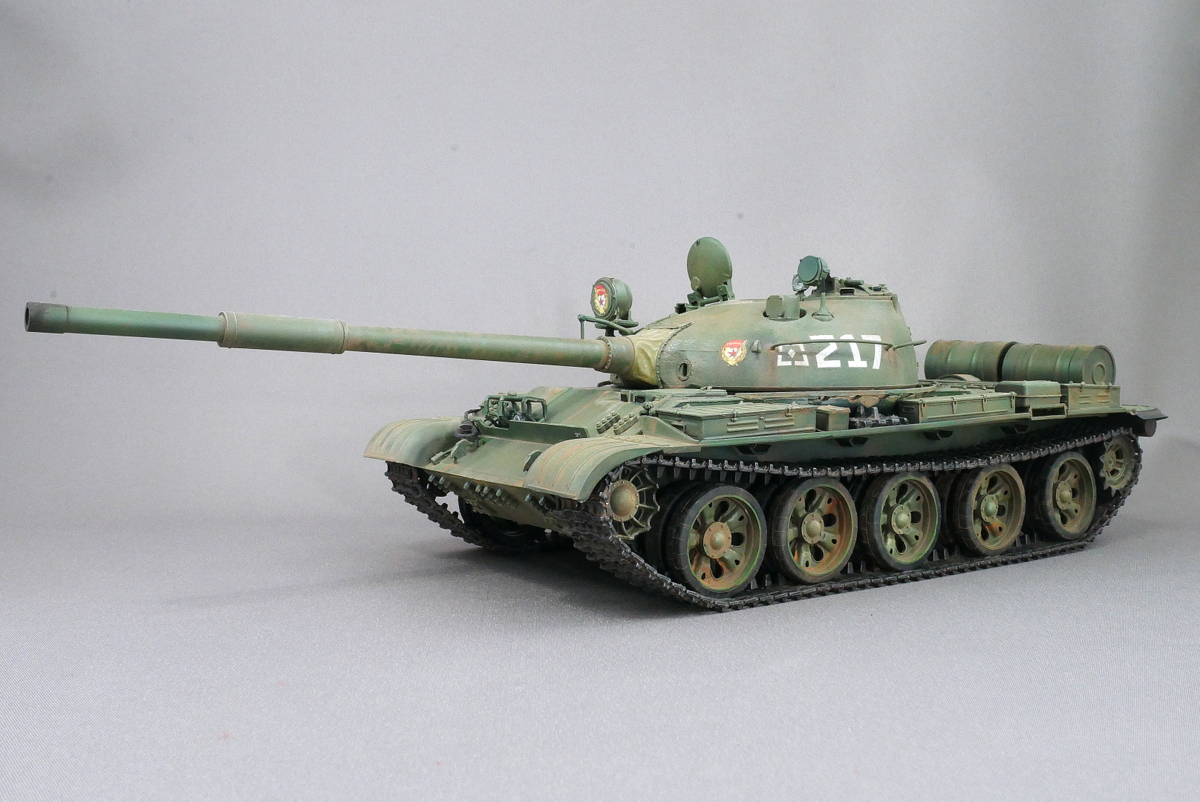
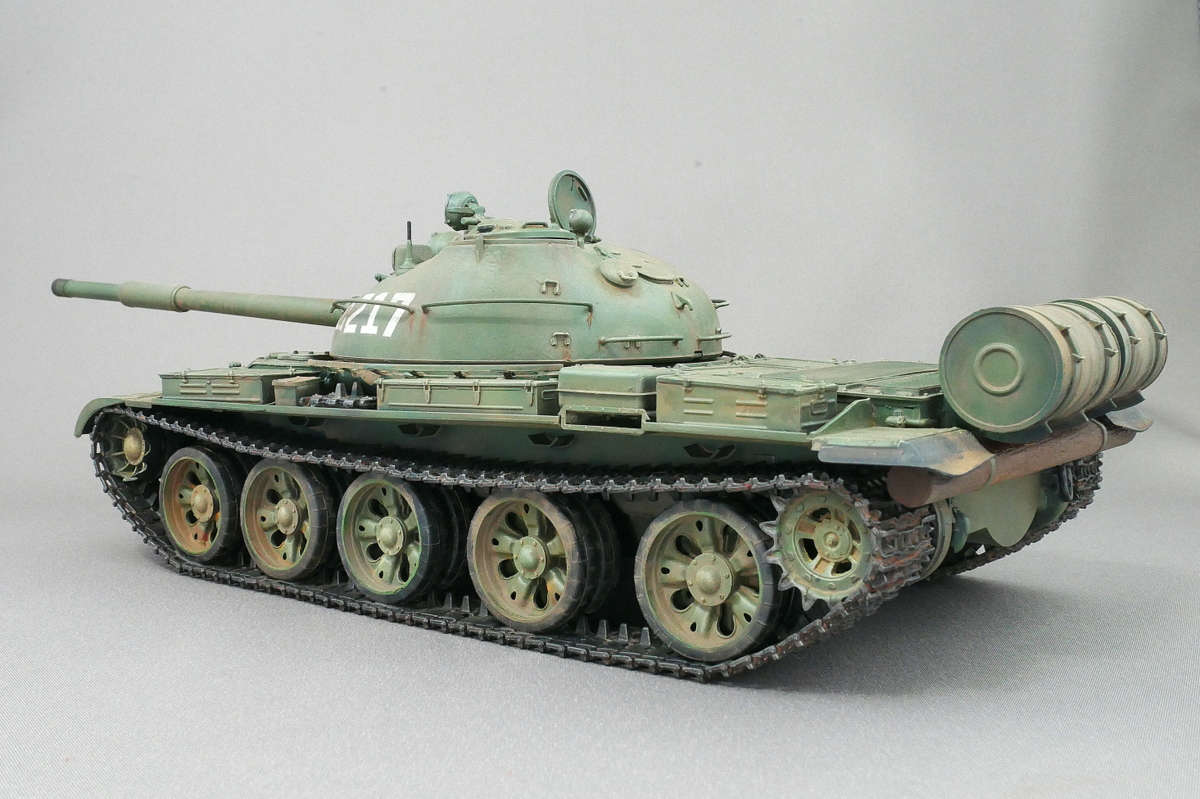
The T-62 tank is finally complete. This tank is the world’s first tank equipped with a smoothbore gun. It resembles the T-55 but features a 115mm smoothbore gun turret.
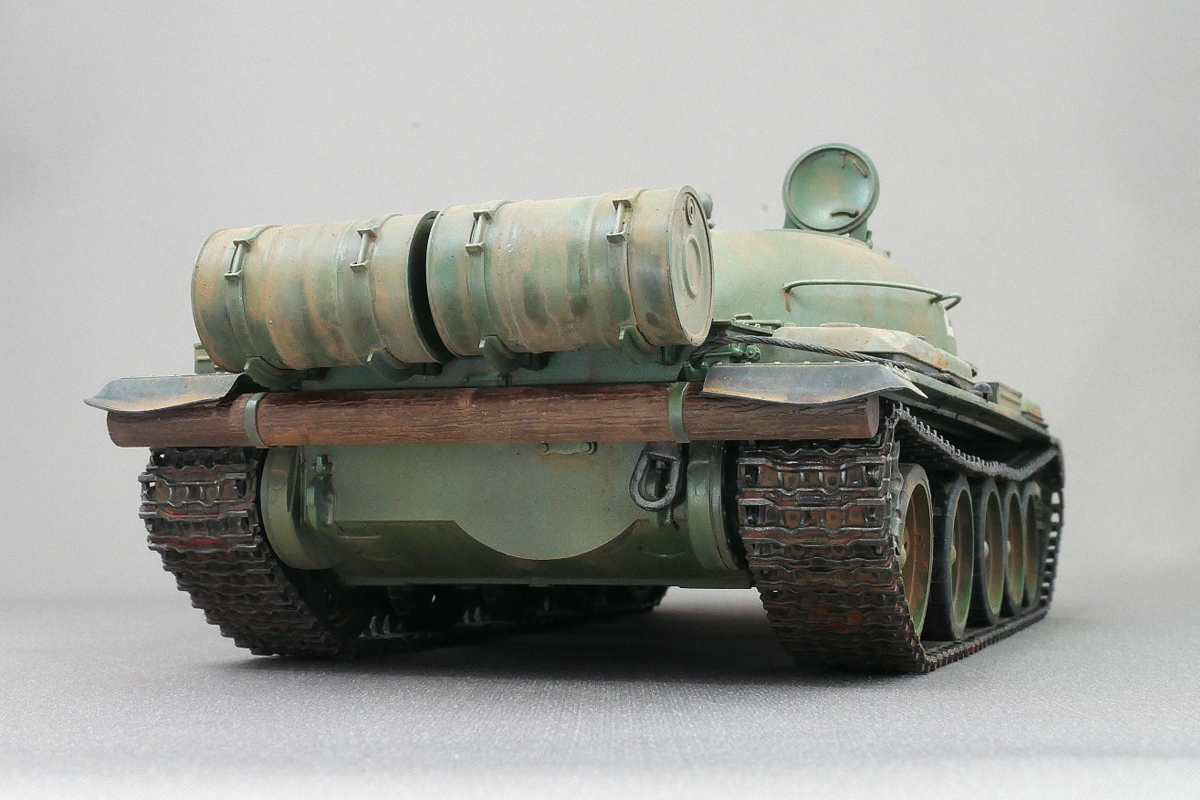
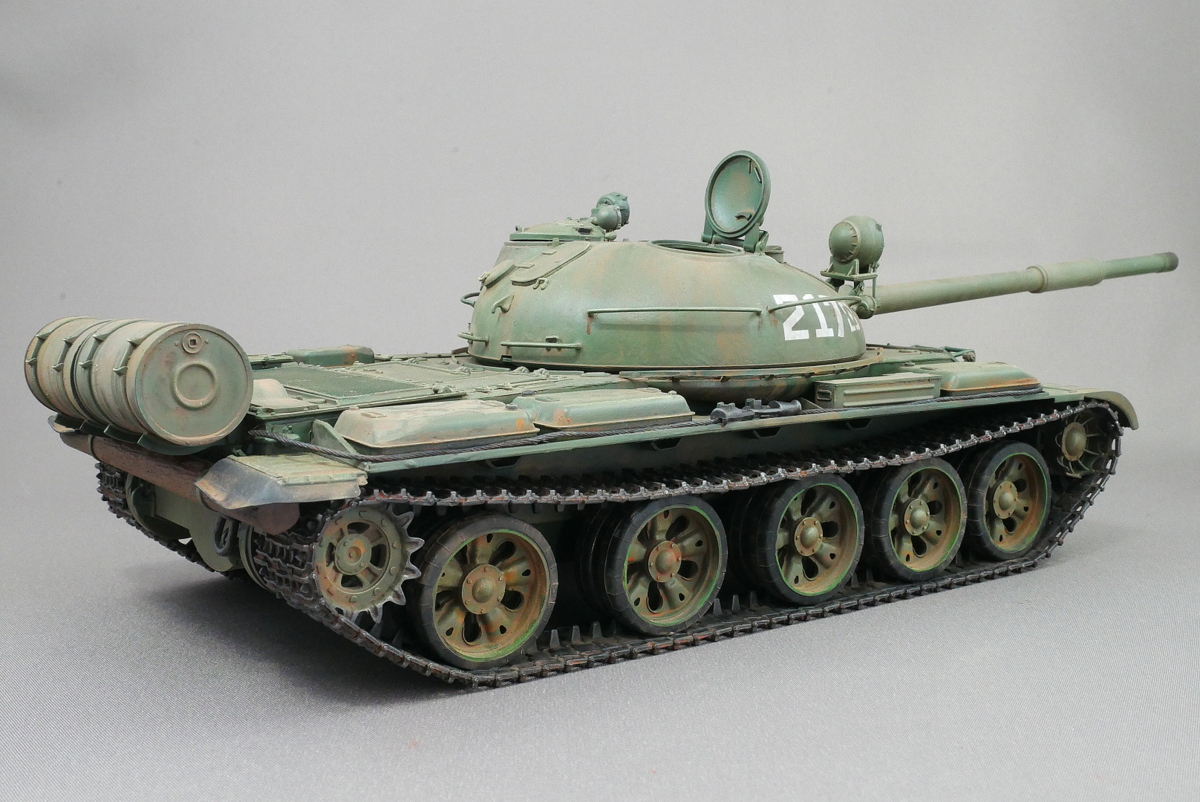
Compared to previous tanks, the firepower was improved, but due to the poor performance of the sighting device, the accuracy rate was extremely low at more than 1,500m.
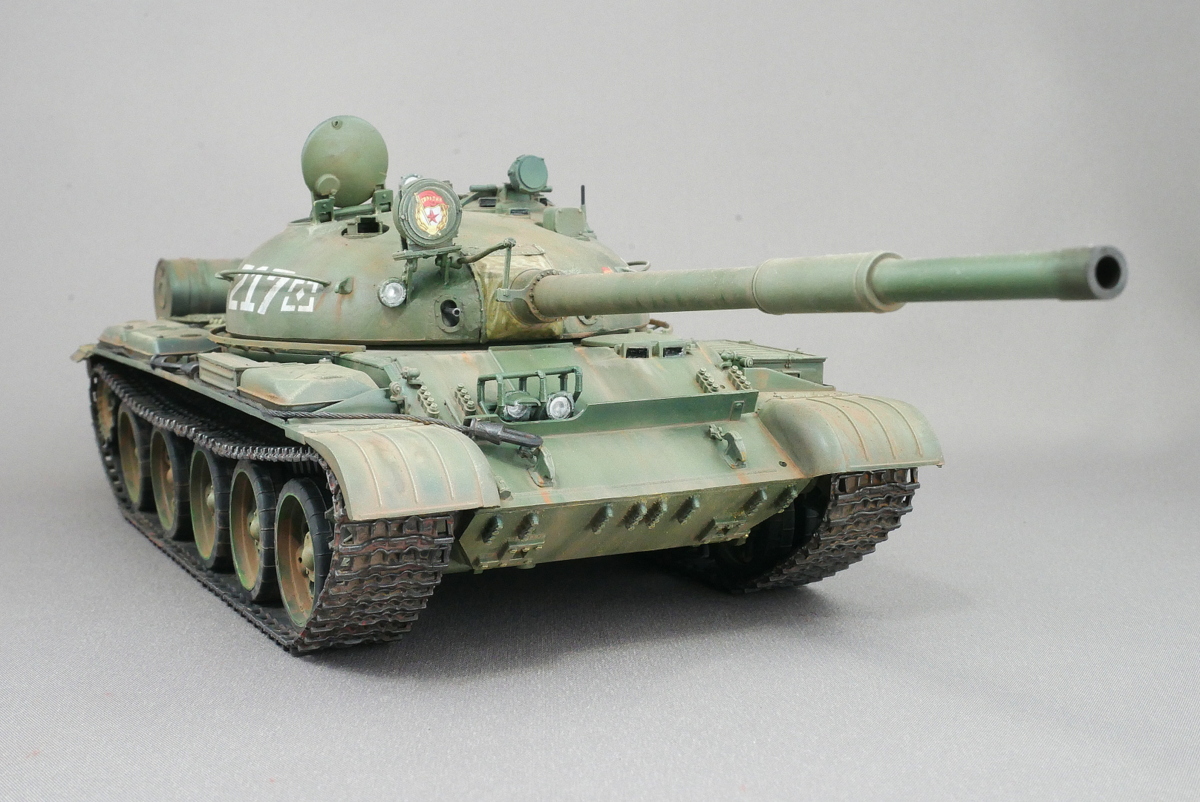
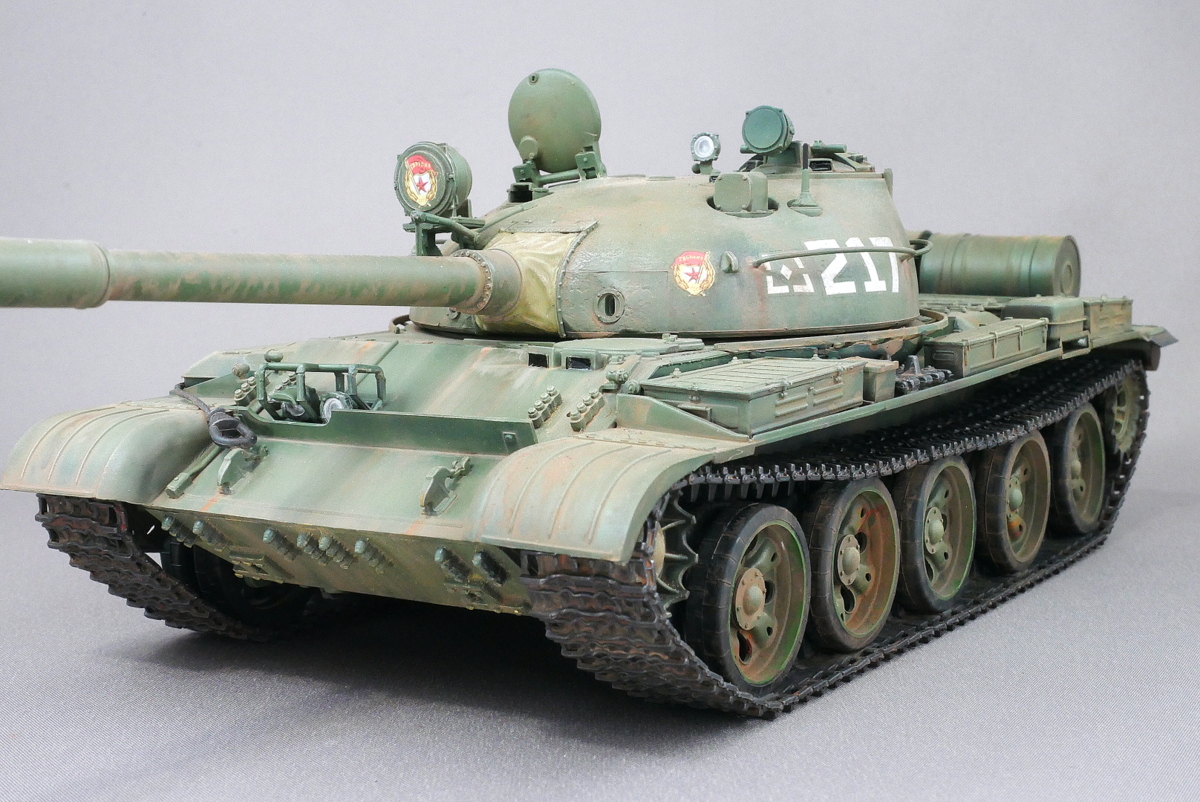
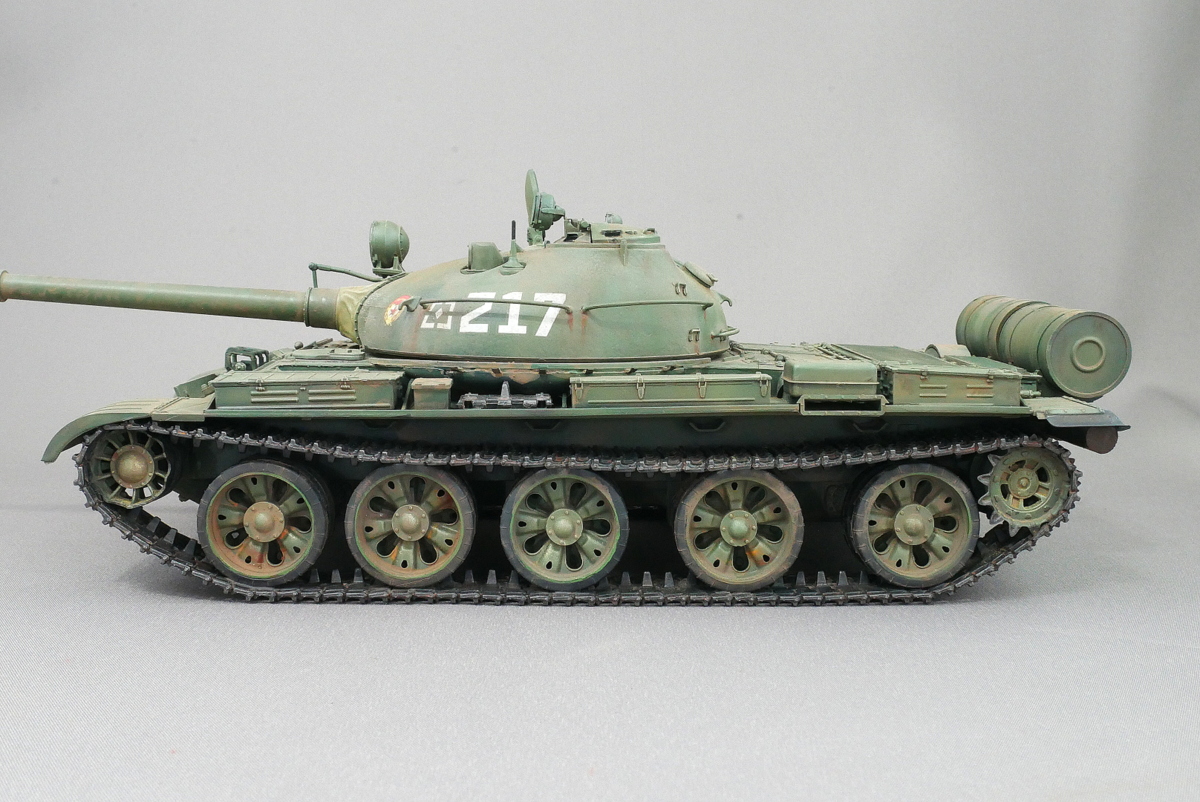
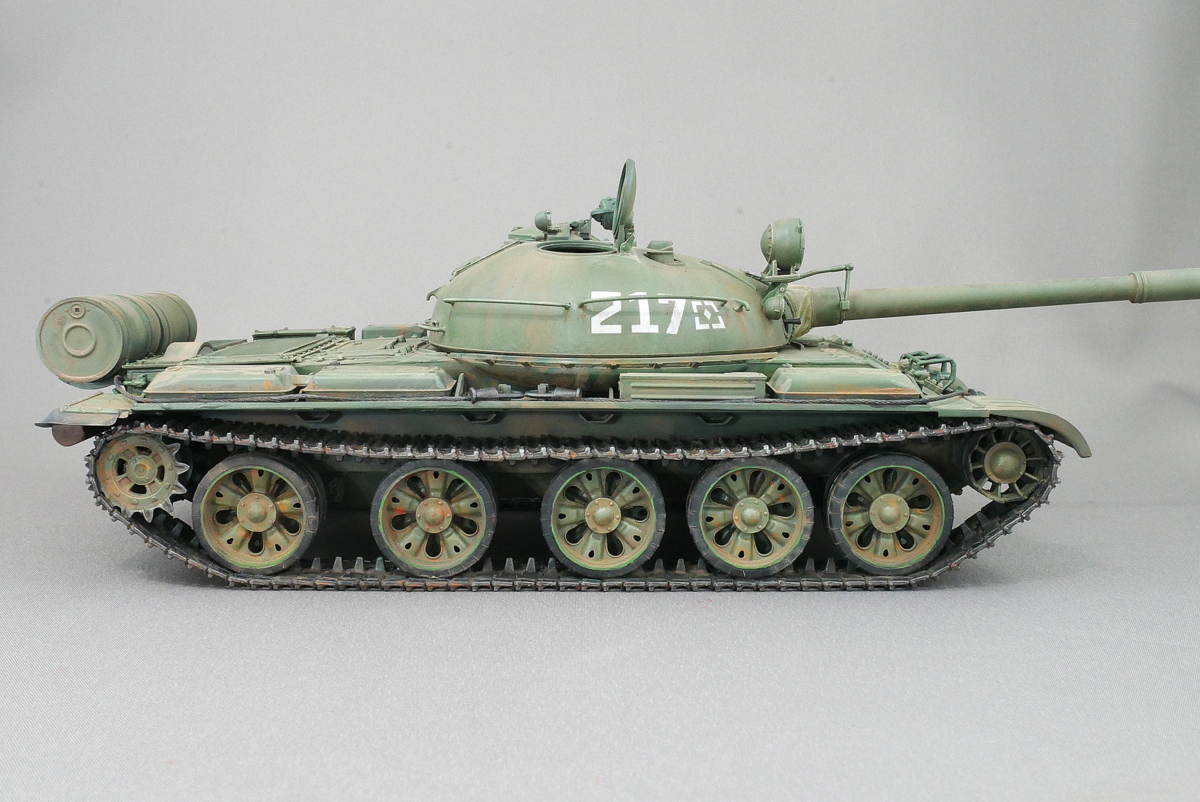
The low vehicle height is characteristic of Soviet tanks. It’s easy to see from the side. I heard it’s lower than a T-55 tank. It is probably advantageous regarding tactics because it exposes less area to the enemy. The inside of the turret is so narrow that it seems hard to handle the shells. Removing shell pods after firing was largely manual, as it could not be done automatically unless some conditions were met. The firing rate was much slower than the M60, considered a rival tank. This may be due to the skill of the tank crew.
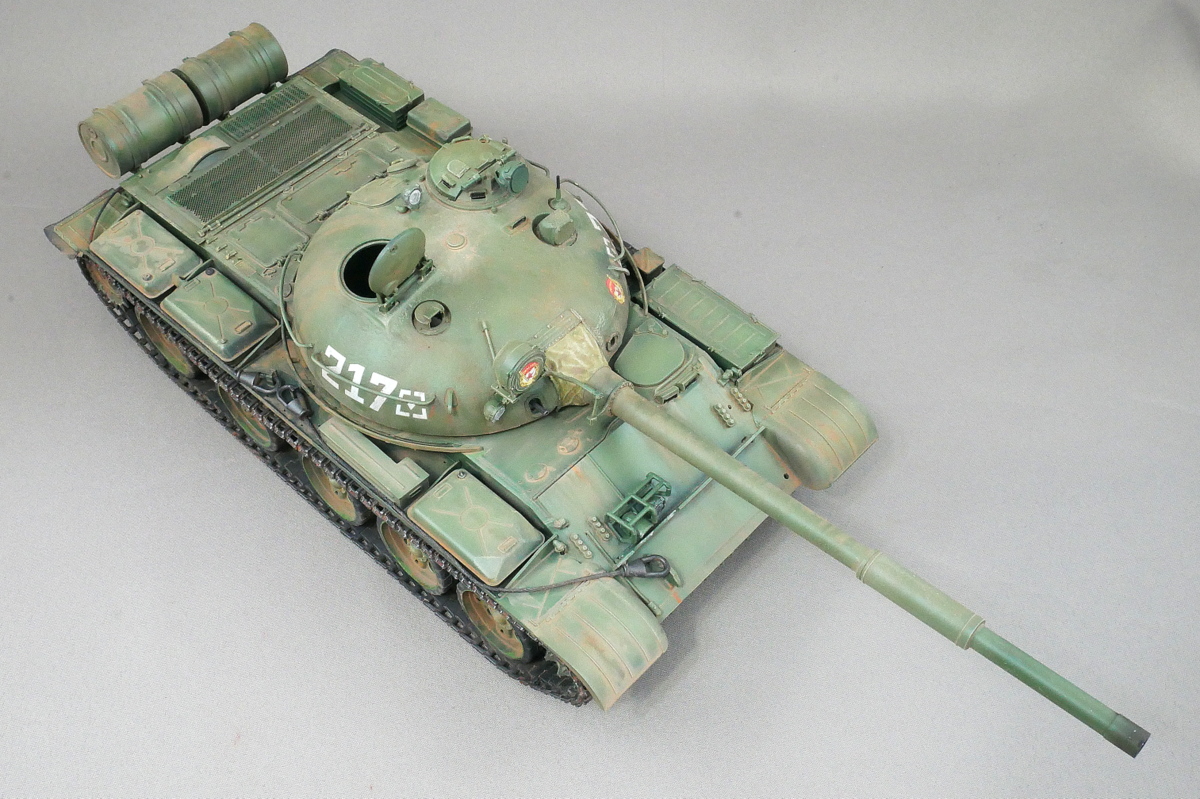
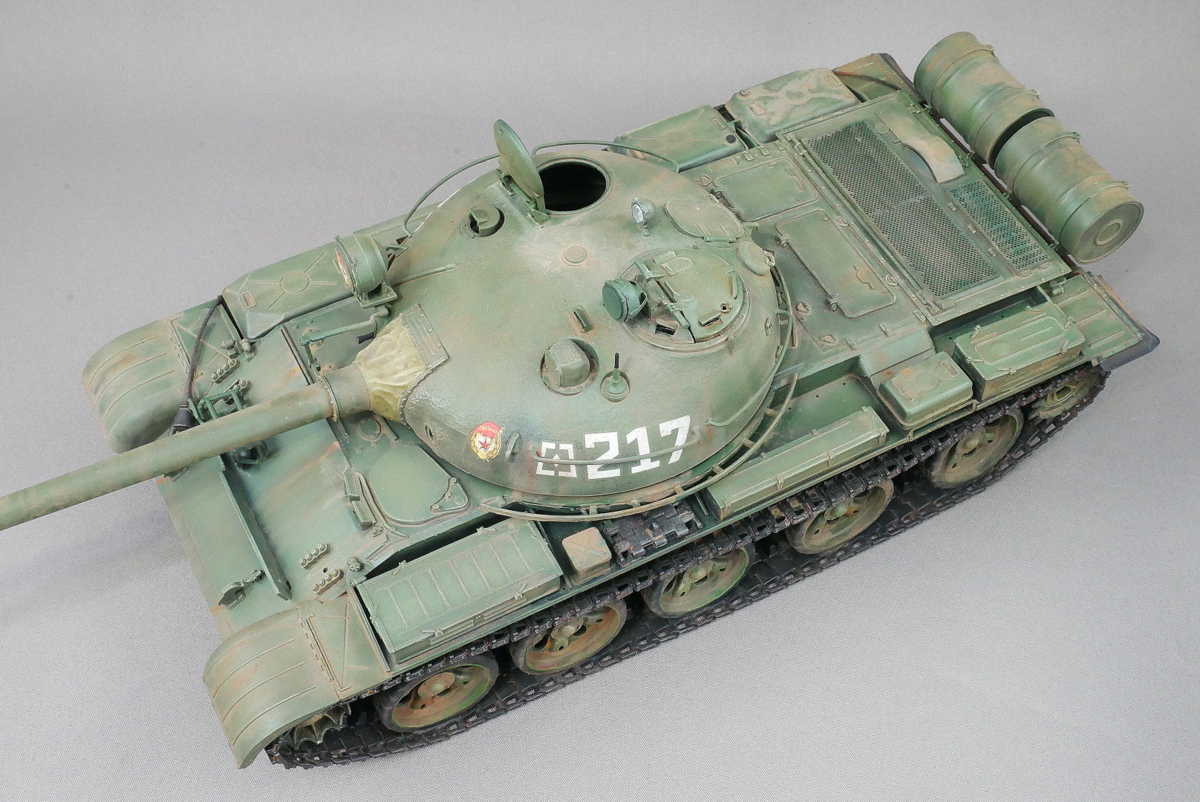
Weathering was done lightly, focusing on traces of rain, wet and dry dust, and mud. Then I did dry brush the protrusions.
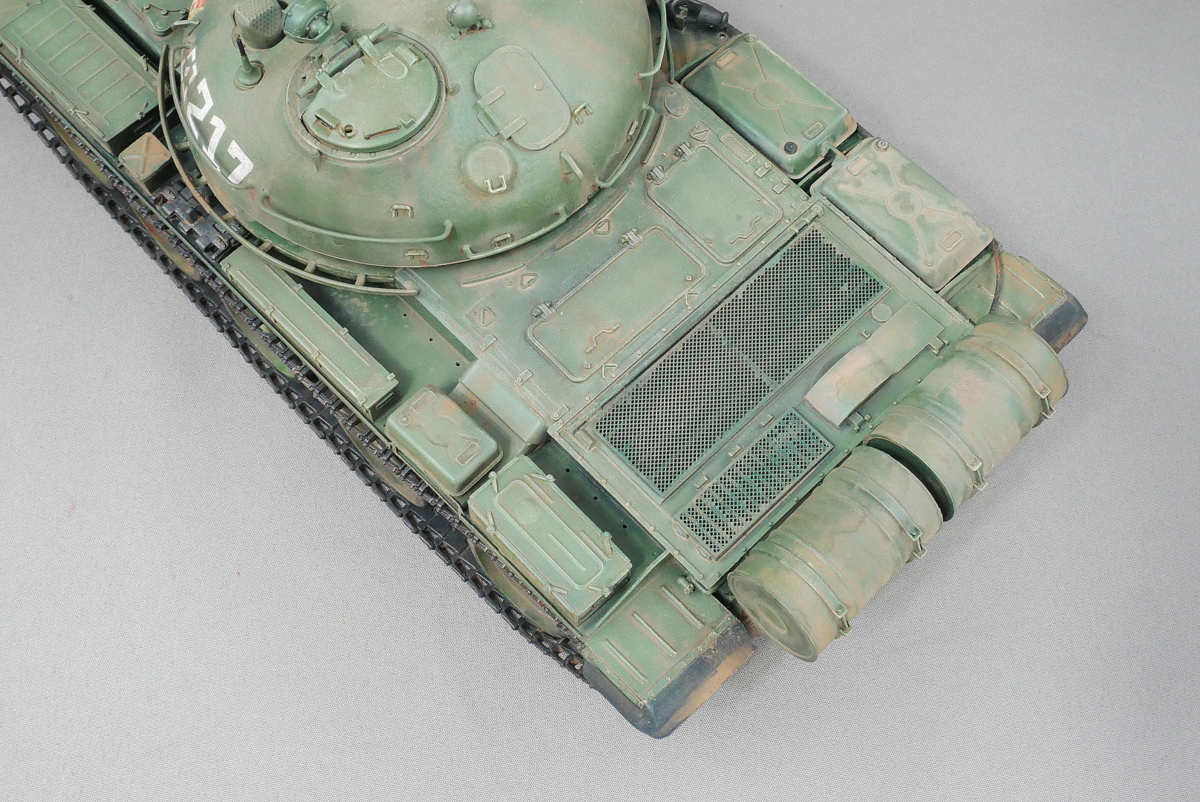
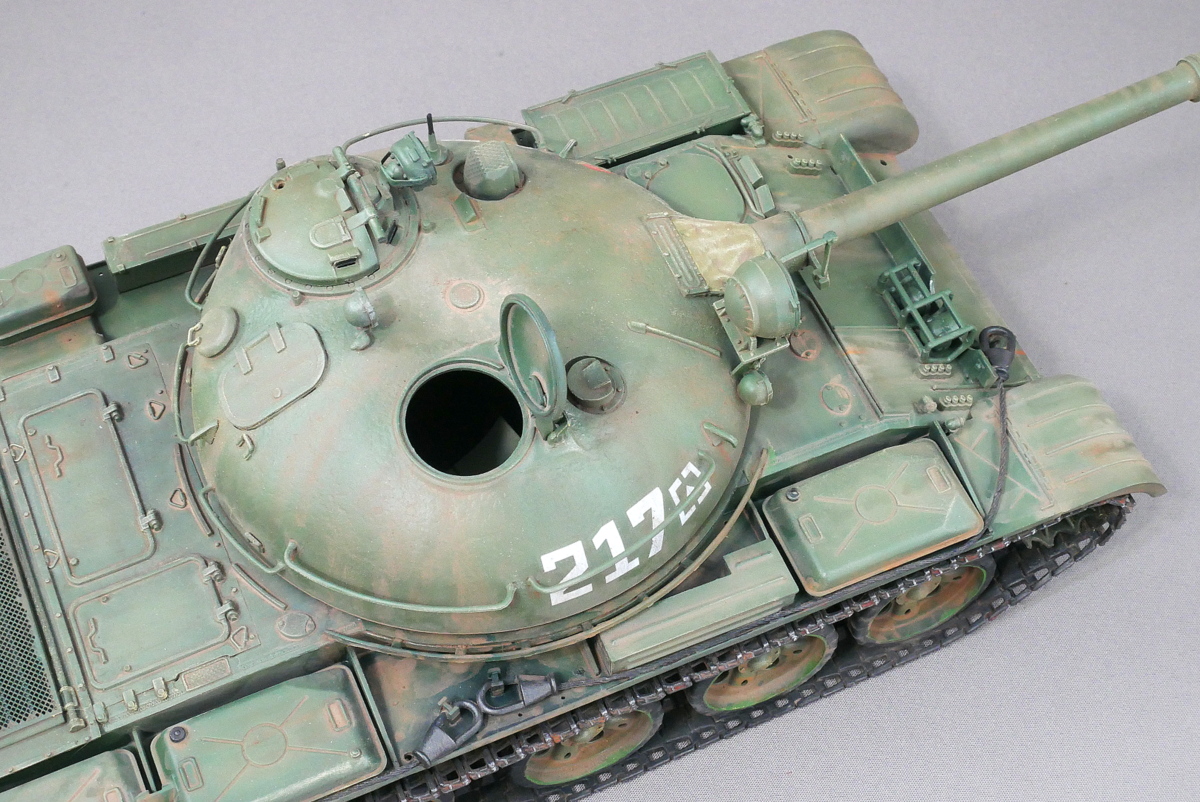
When I looked closely, I found that the T-62 was full of exposed fuel tanks. It is frightening as it seems to explode and burst into flames as soon as it is hit. I wonder if this is all right.
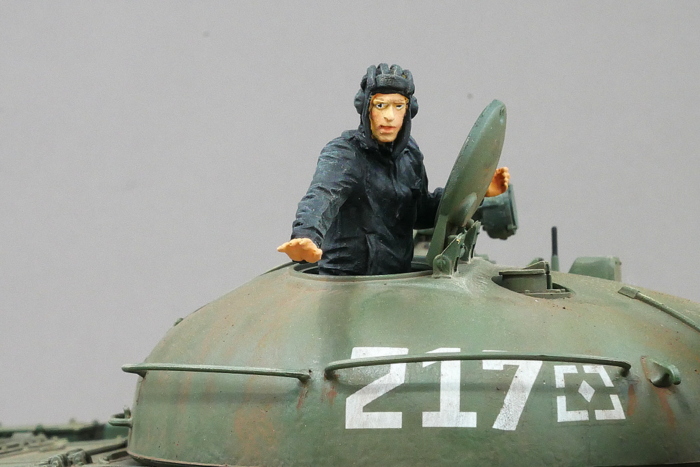
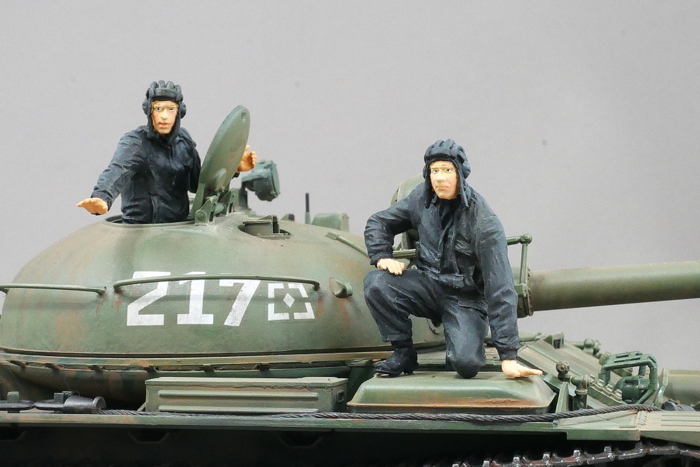
The modern Russian tank crew have uniforms that look like black top and bottom work uniforms, so there’s not much color change, and they’ve become simple. I painted light gray for light and dark, including wrinkles in the clothes. I tried my best to paint the details of the face, but as usual, it was too delicate and challenging. The face is finer than the injection figure, so it was a little easier to paint.
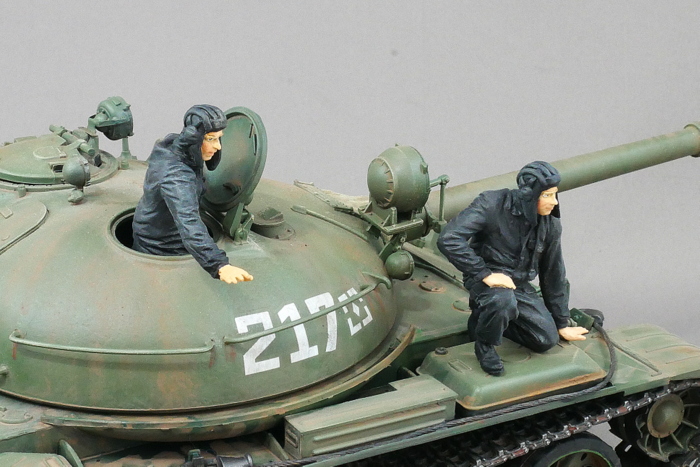
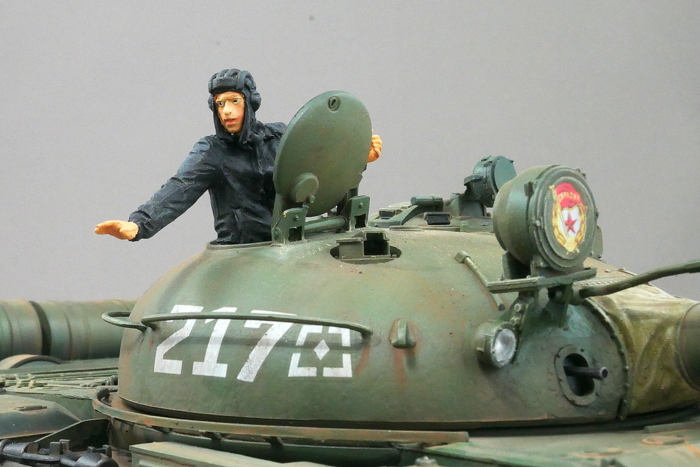
The picture is dark, and I don’t understand it well, but I wonder how it is. Russian tank crew in the ongoing war in Ukraine also appear to wear dark uniforms. In some cases, they seem to wear camouflage. Seeing so many destroyed vehicles of both armies in the photos saddens me.
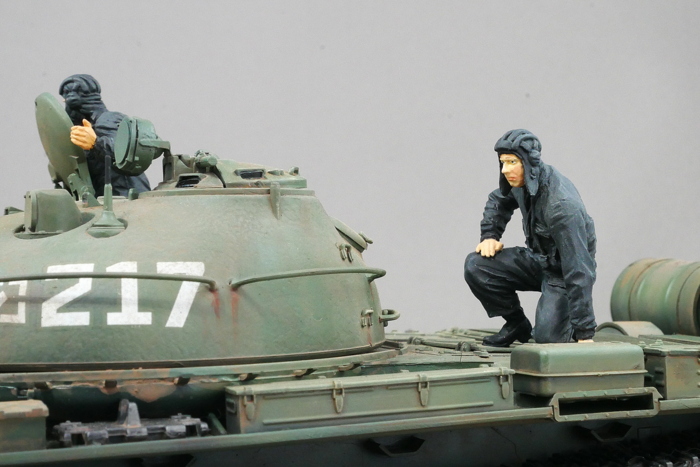

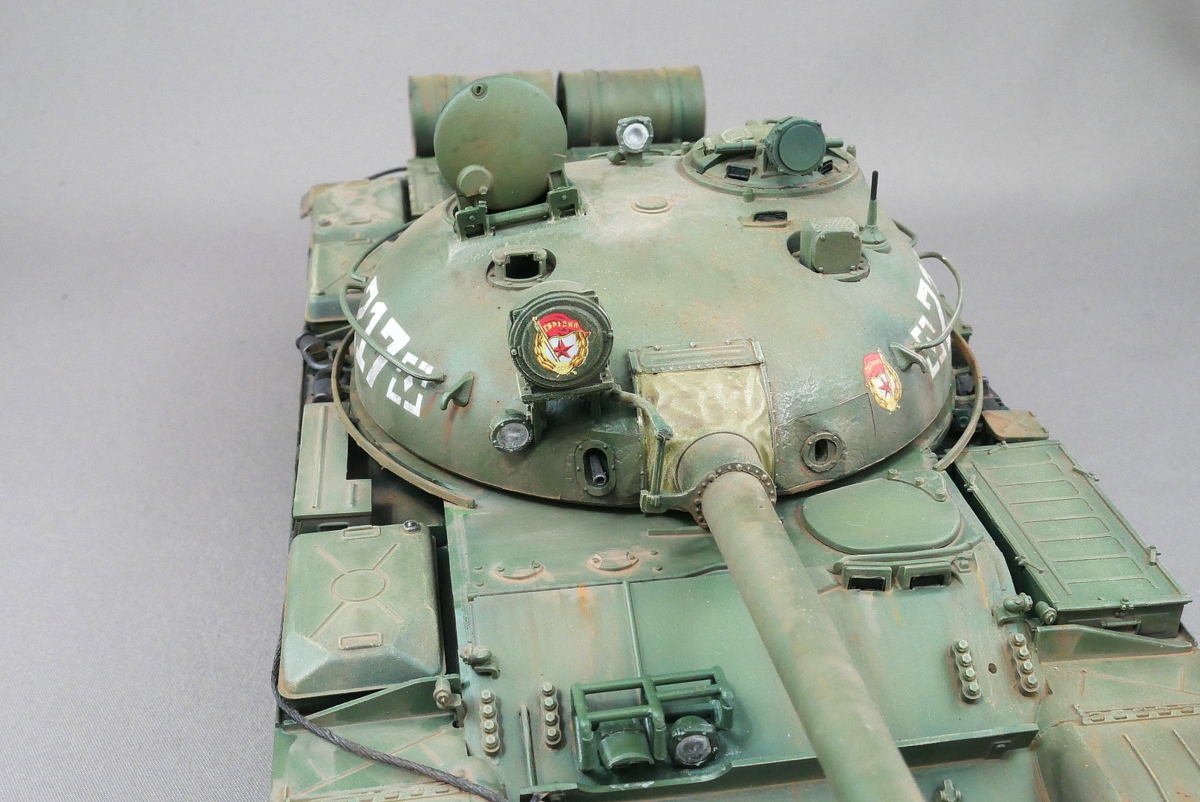
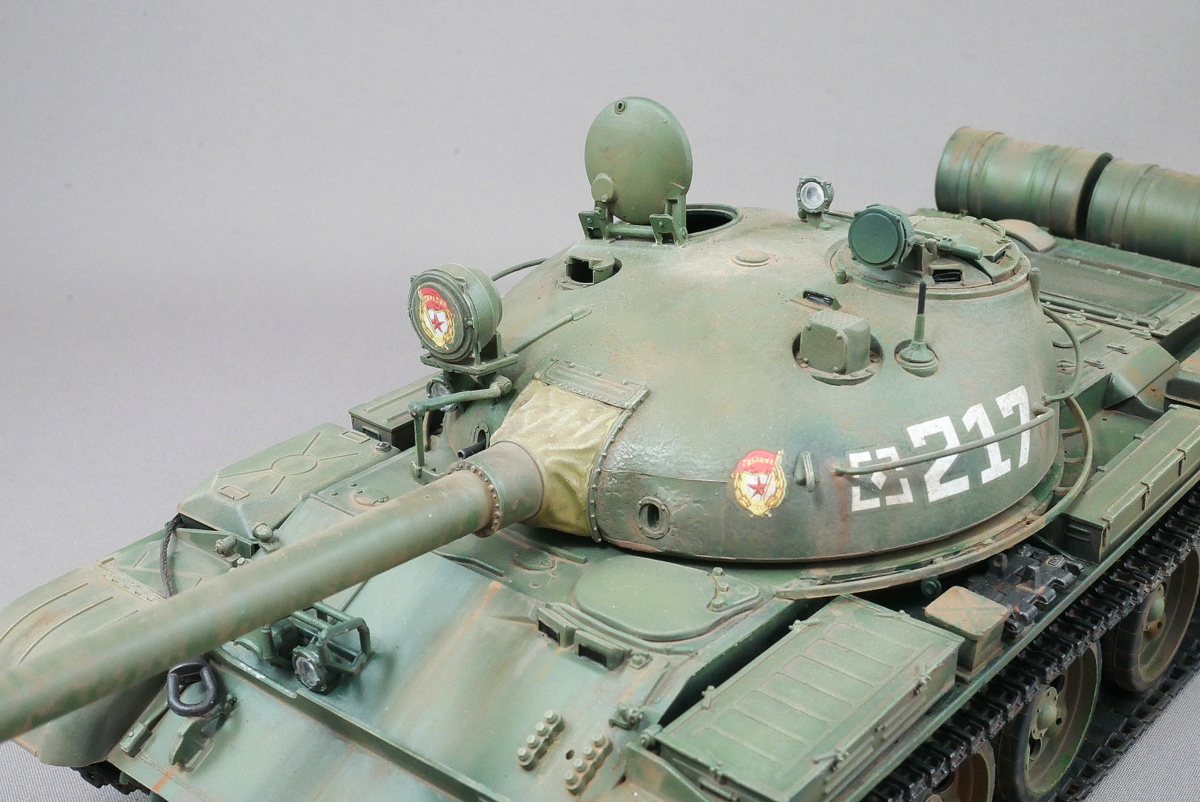
Clear parts are fitted here and there to increase precision.
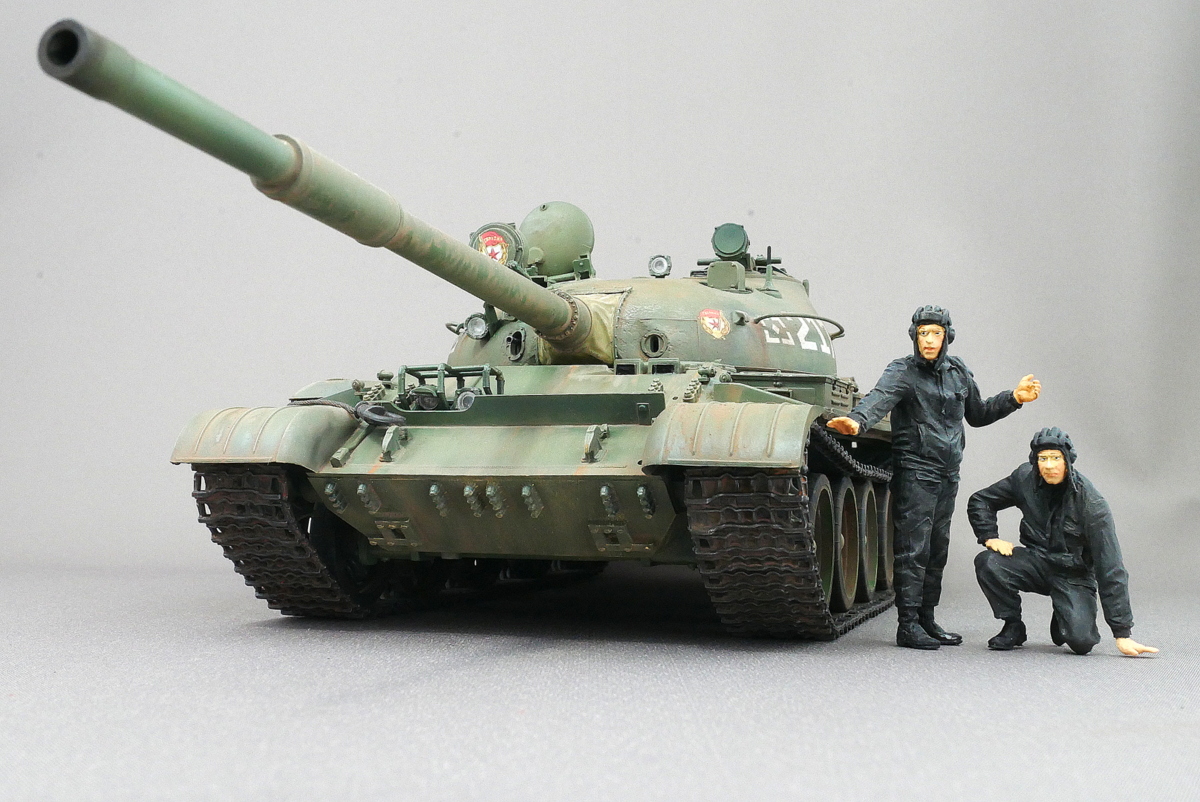

I pulled out the tank crew and lined them up. This tank has such a long barrel that it’s hard to fit it all in the frame.
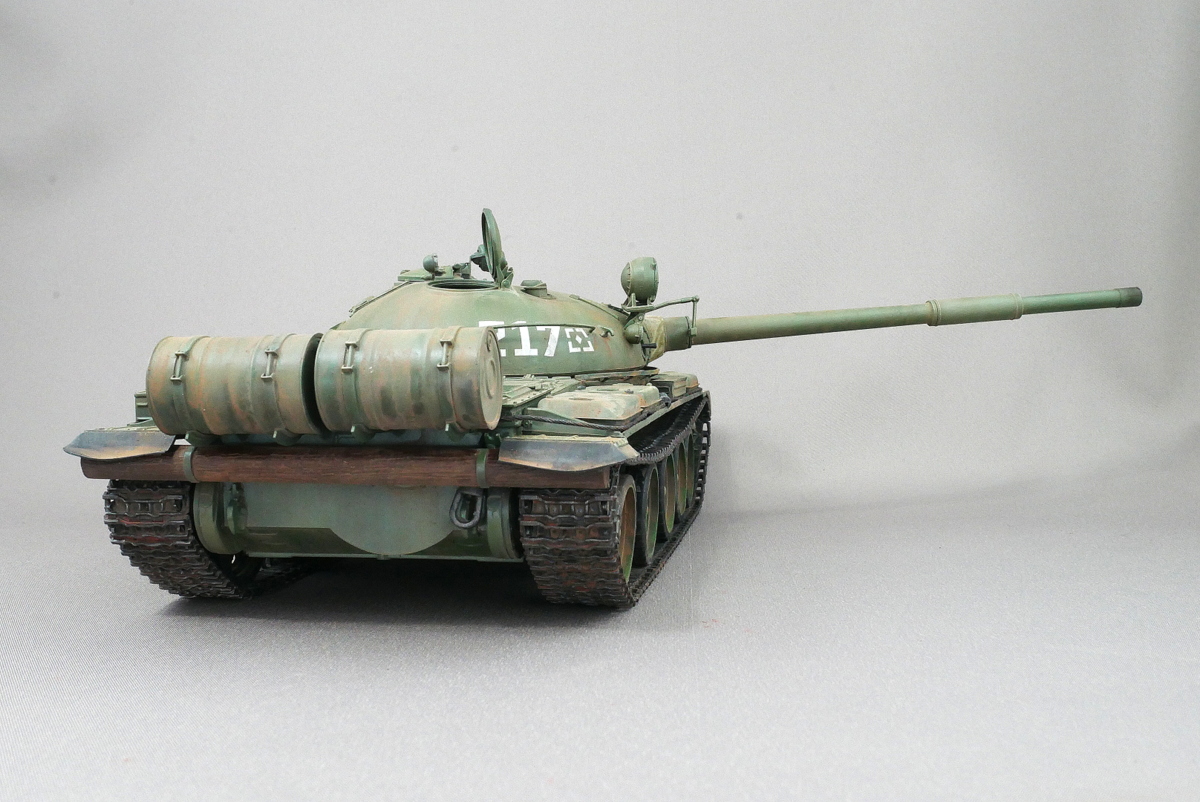
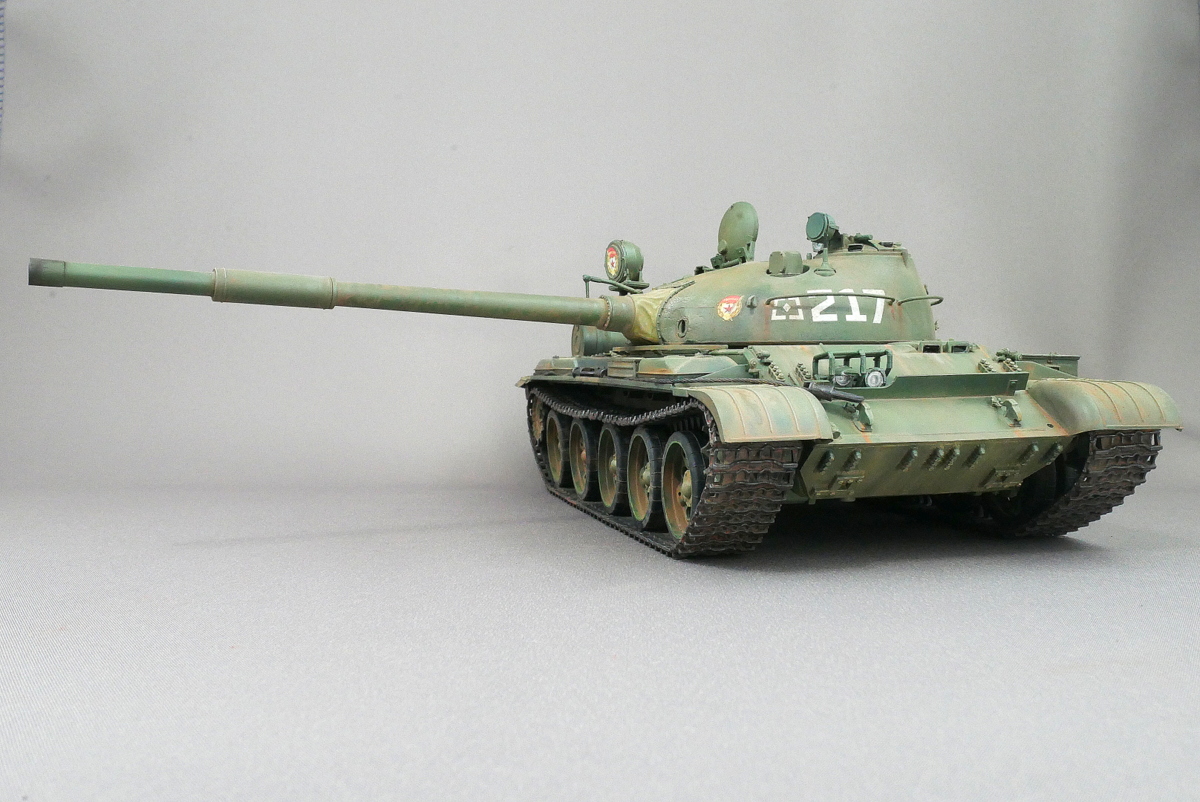
I don’t want to change direction too often because it’s just a turret I cover from the top and lightly fix. However, if the barrel only faces forward, it’s not interesting, so I swung it a bit to take it. It’s powerful to have a row of the same tanks like this. I enjoyed making both tanks and figures.
(2023/06/03)



コメント